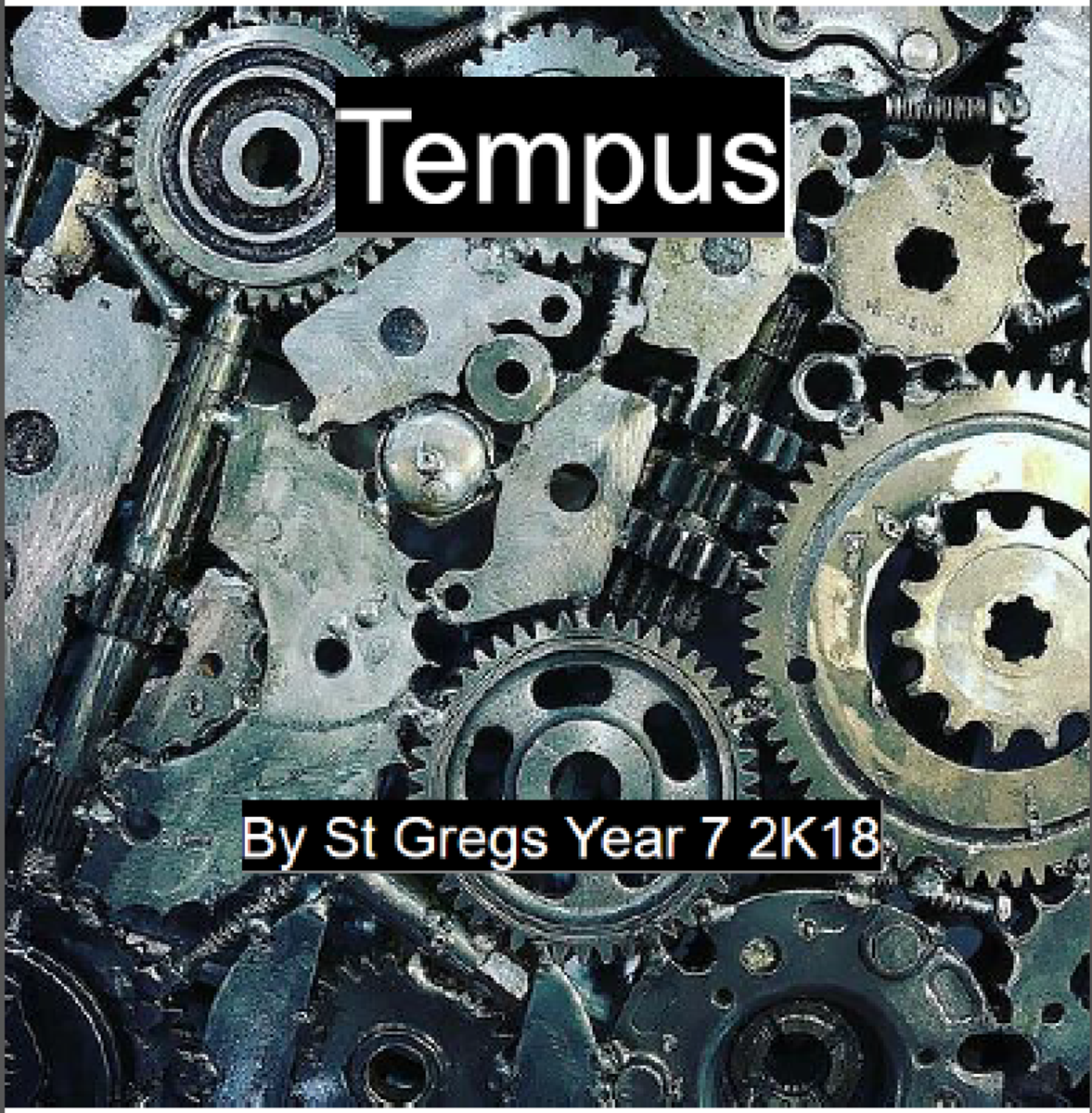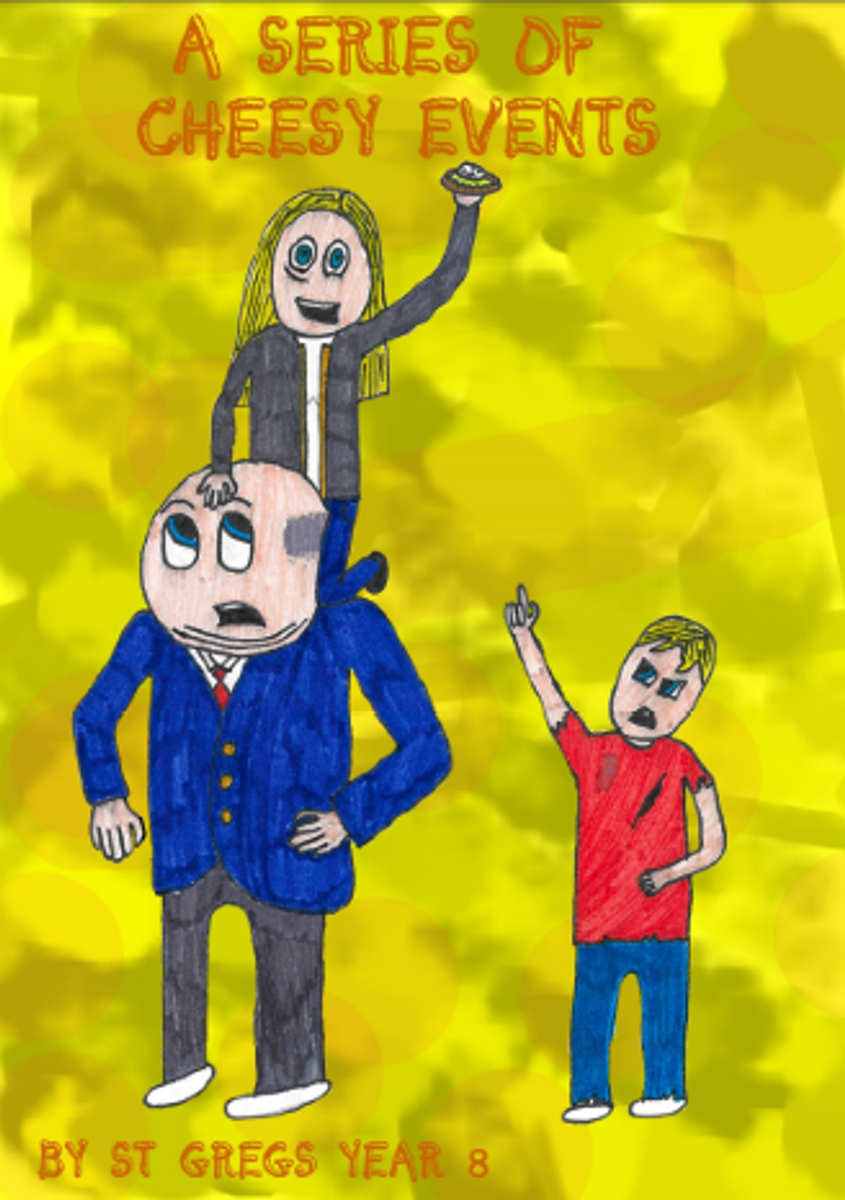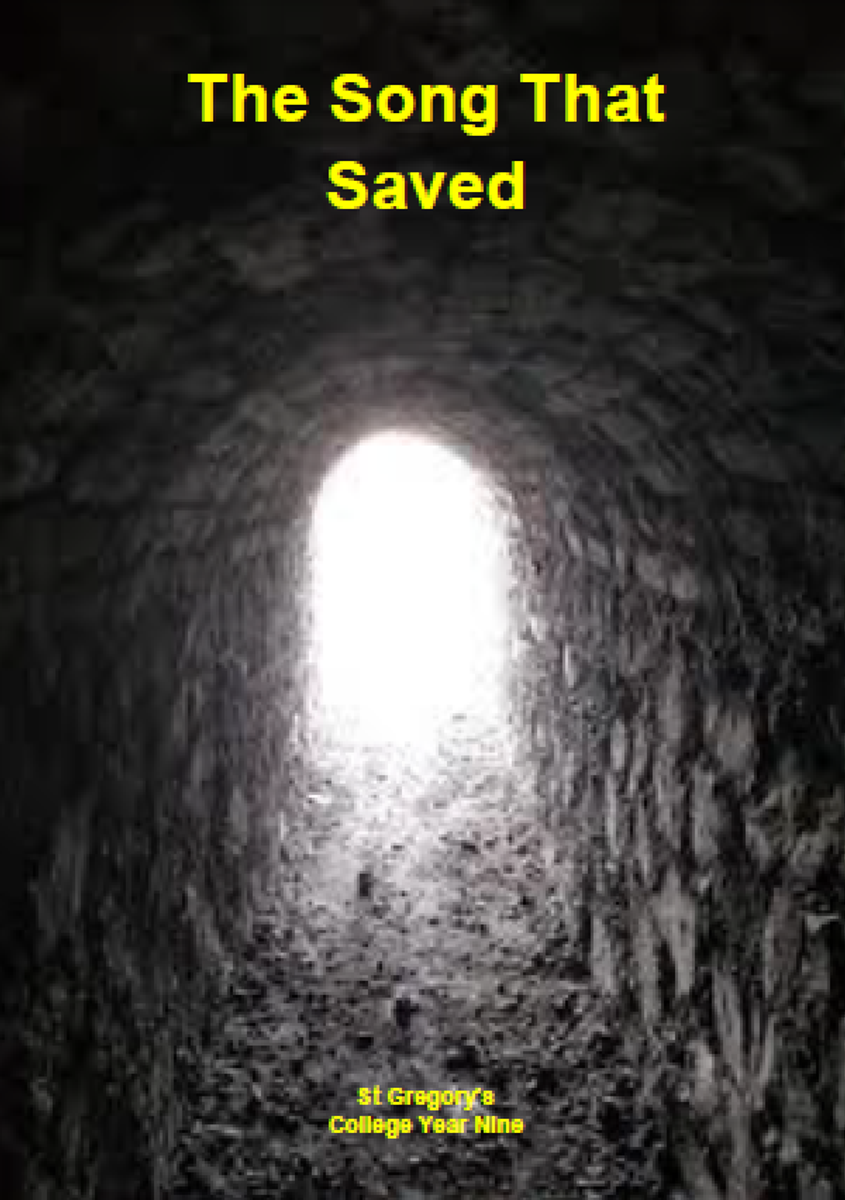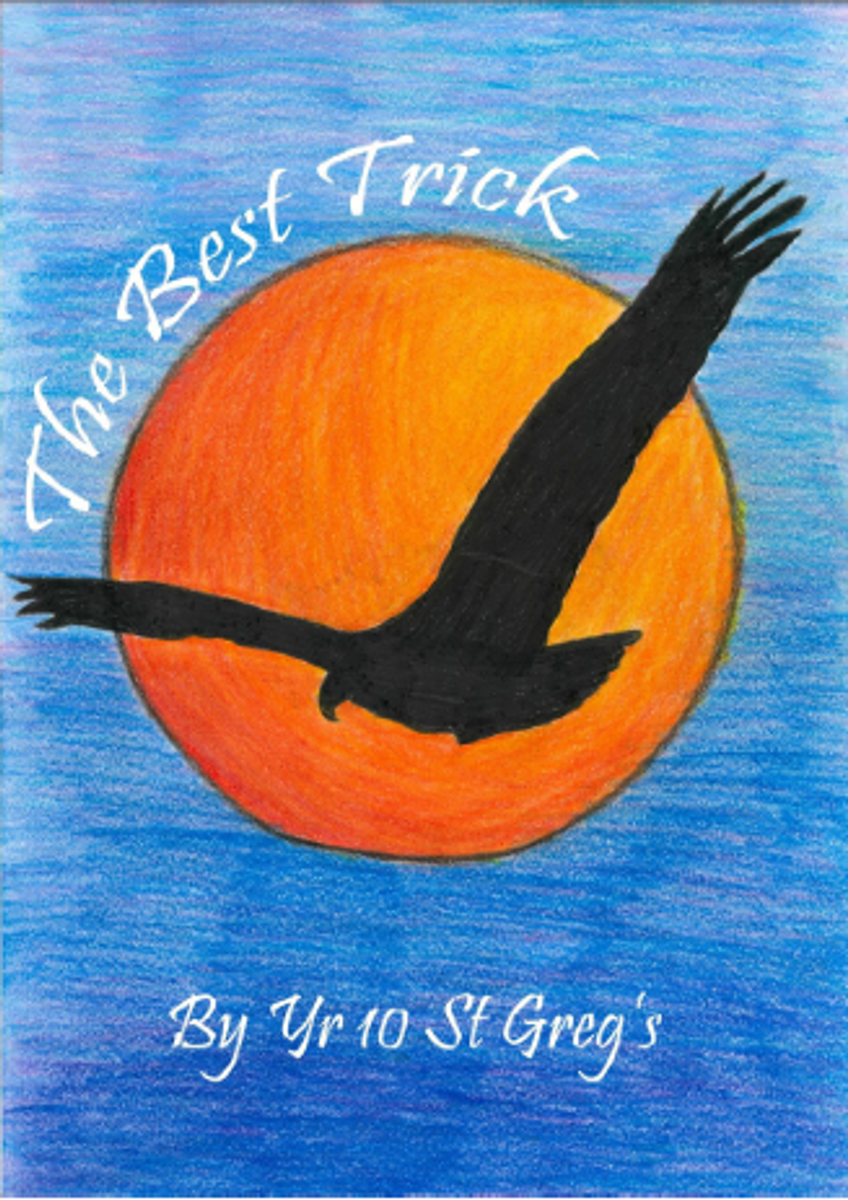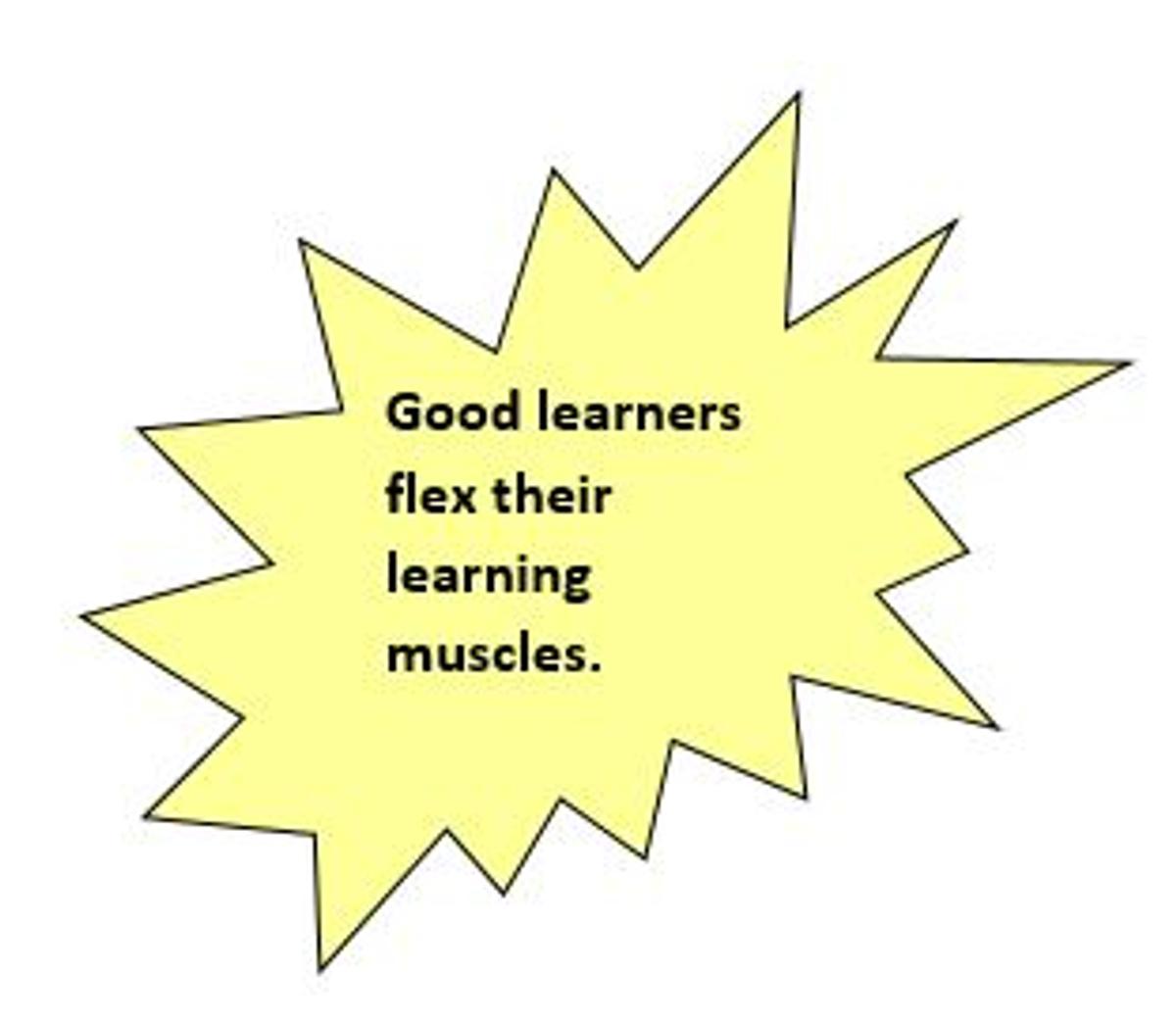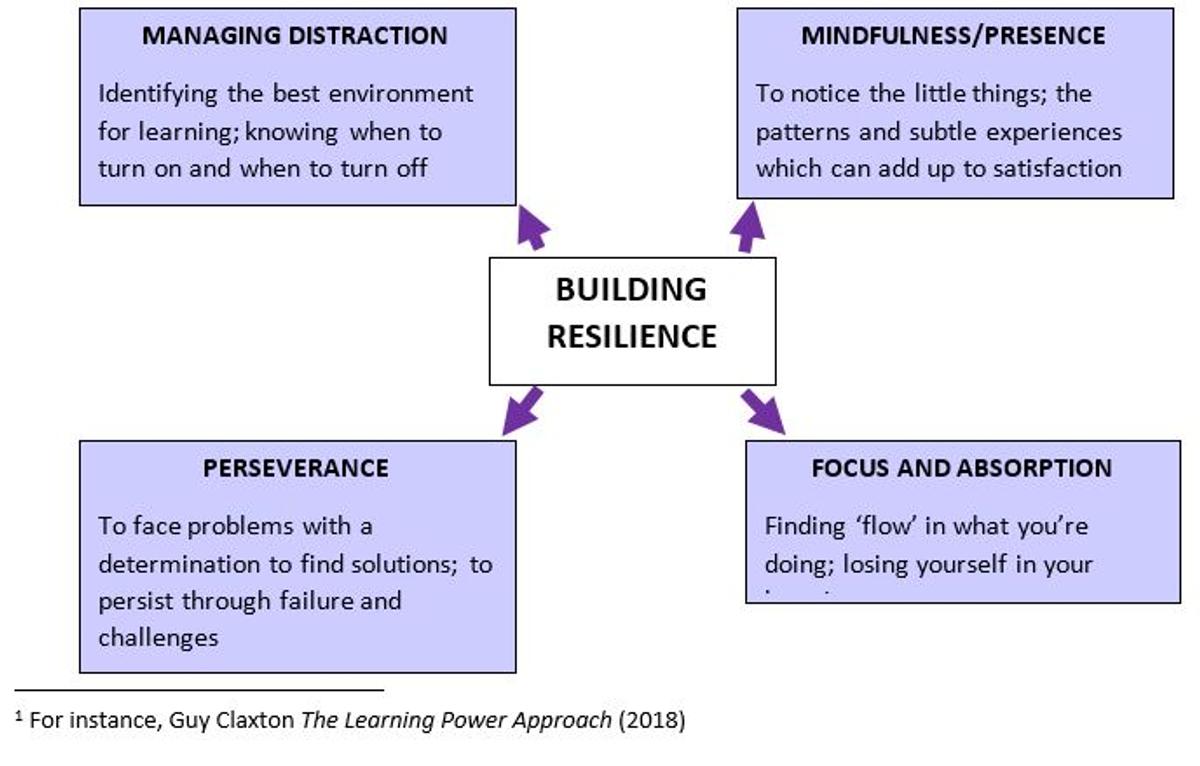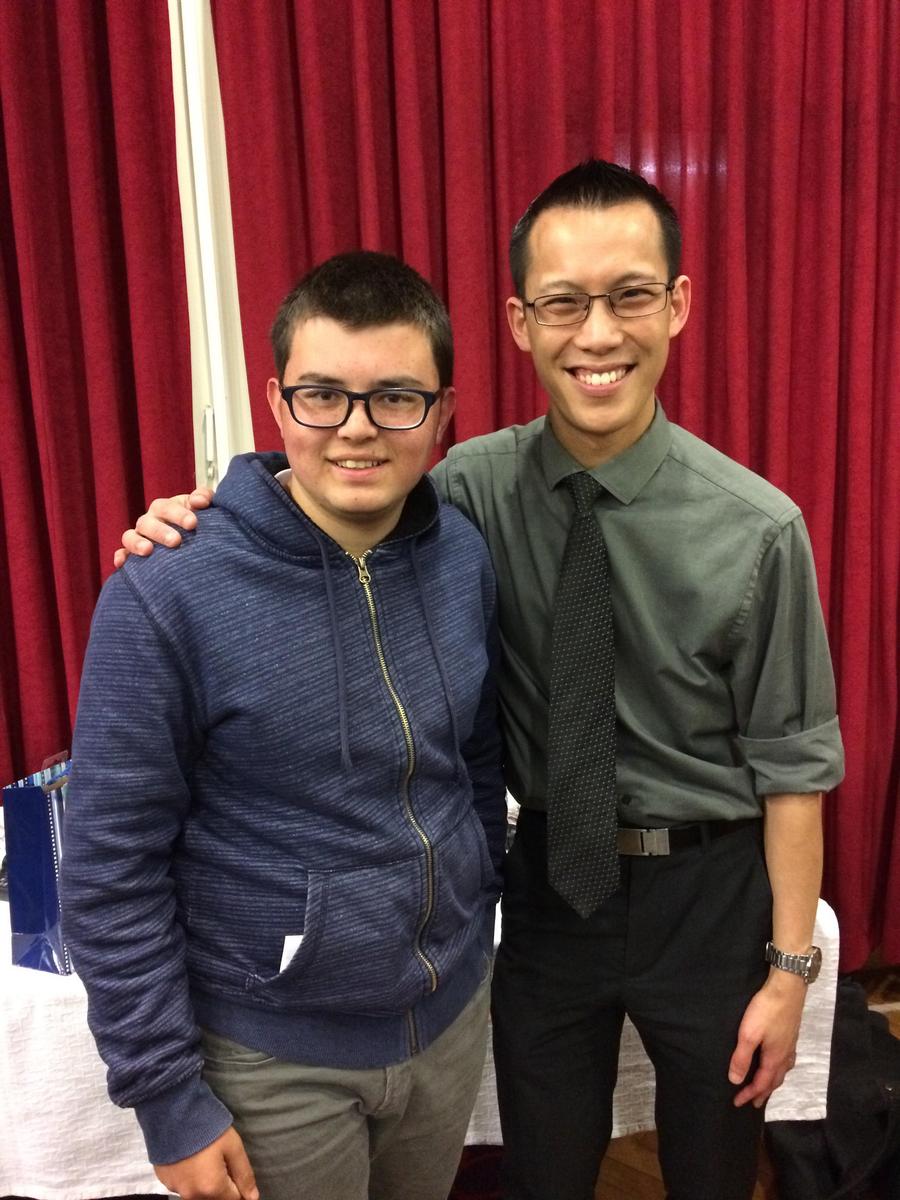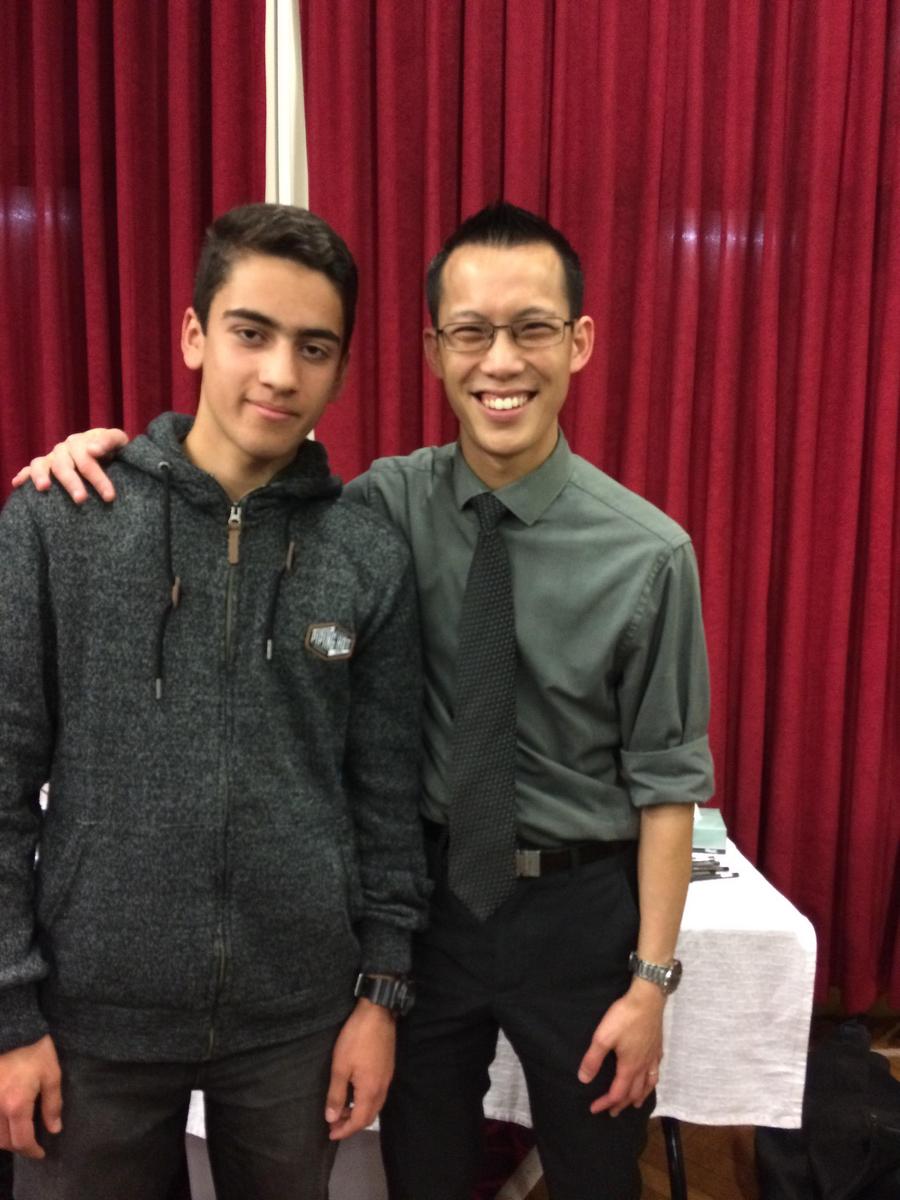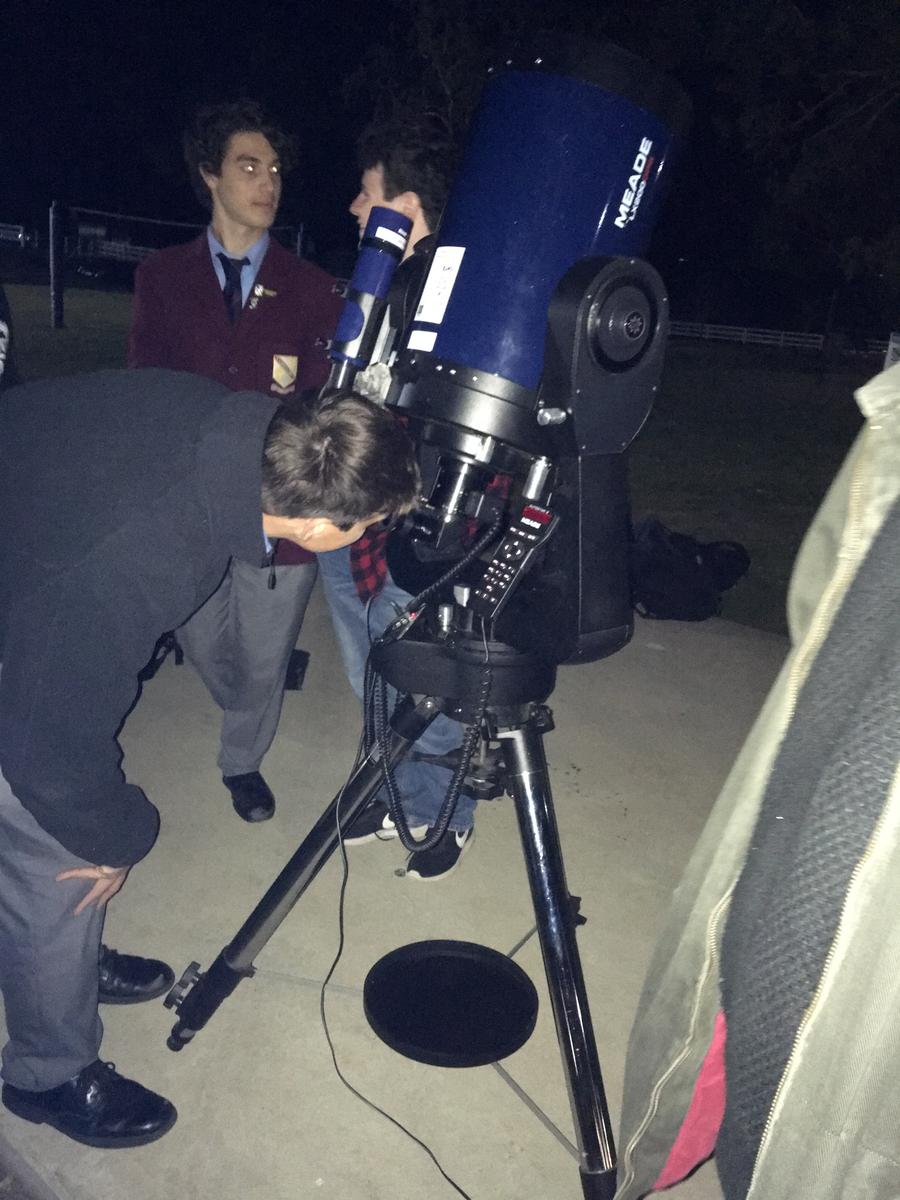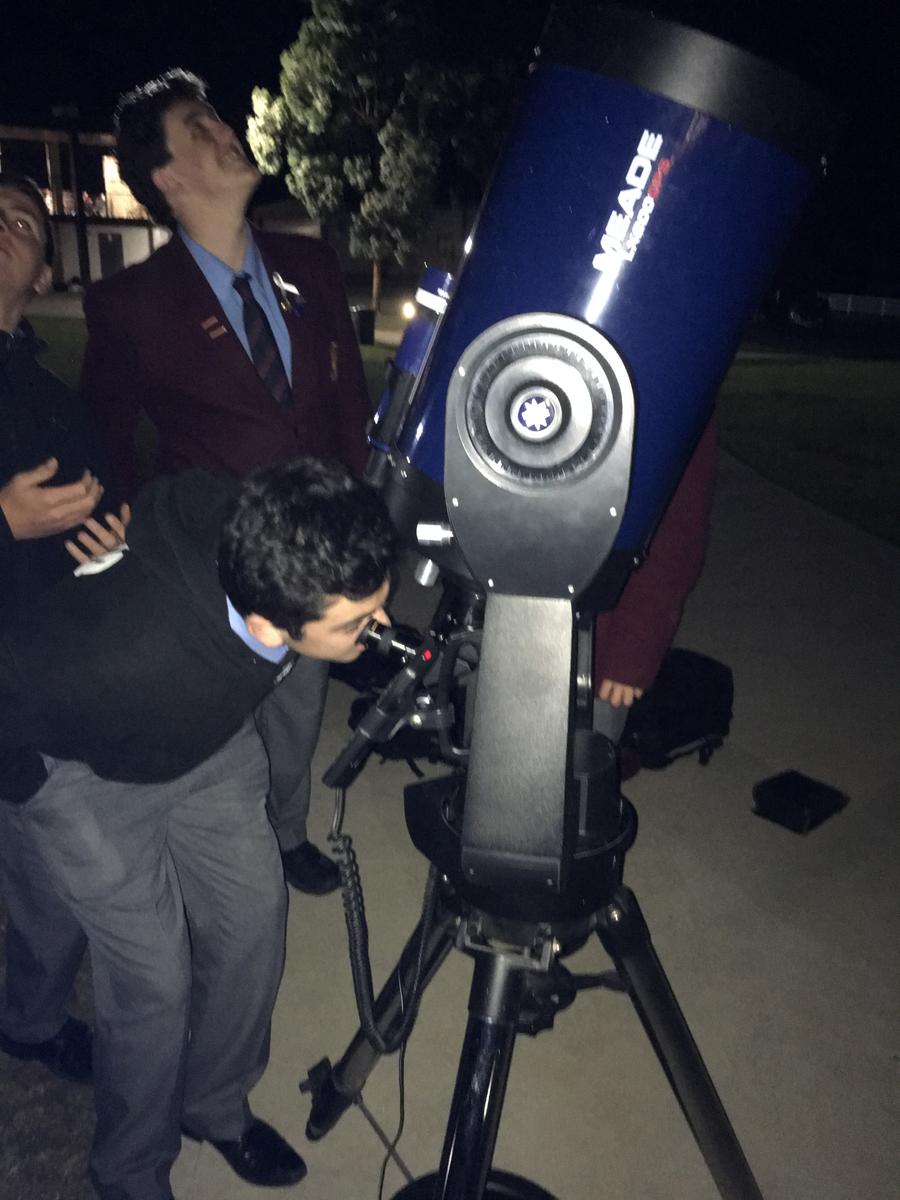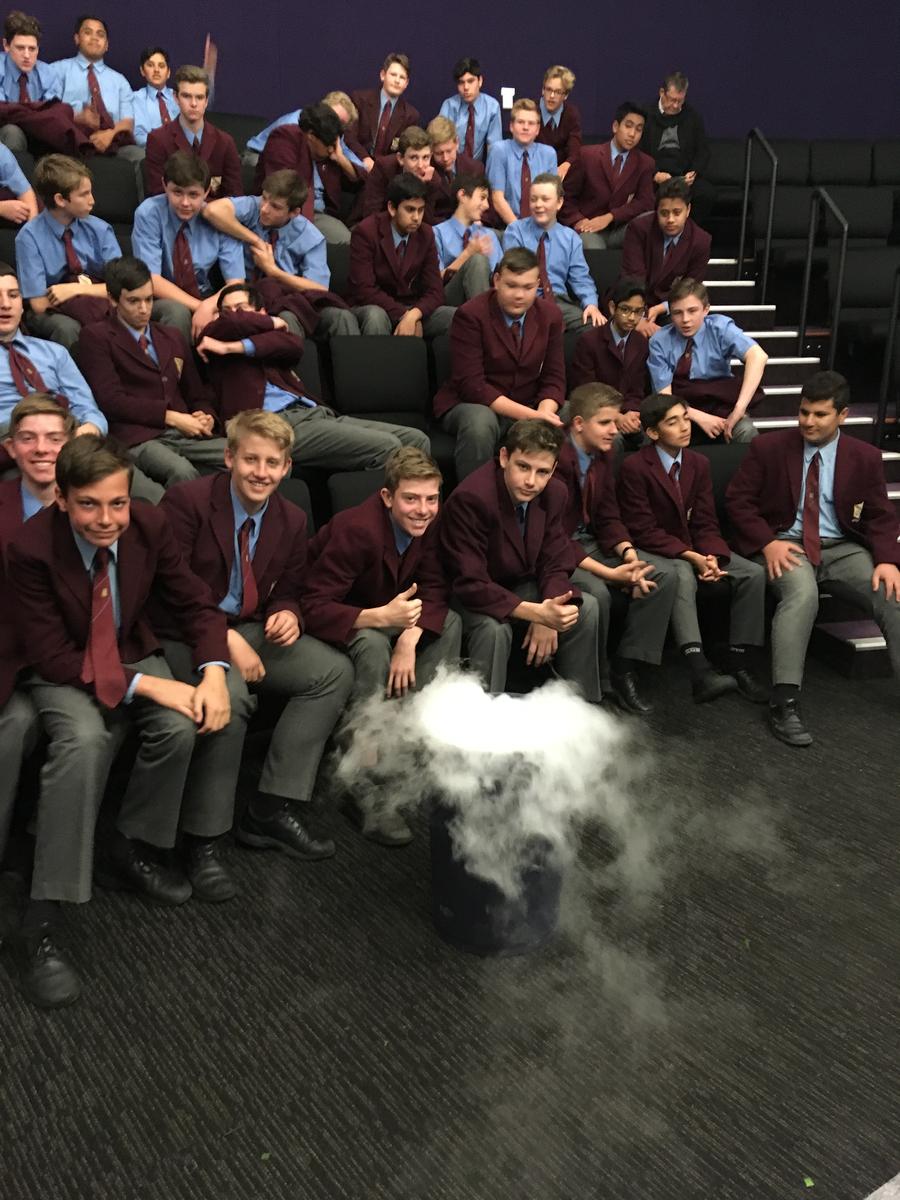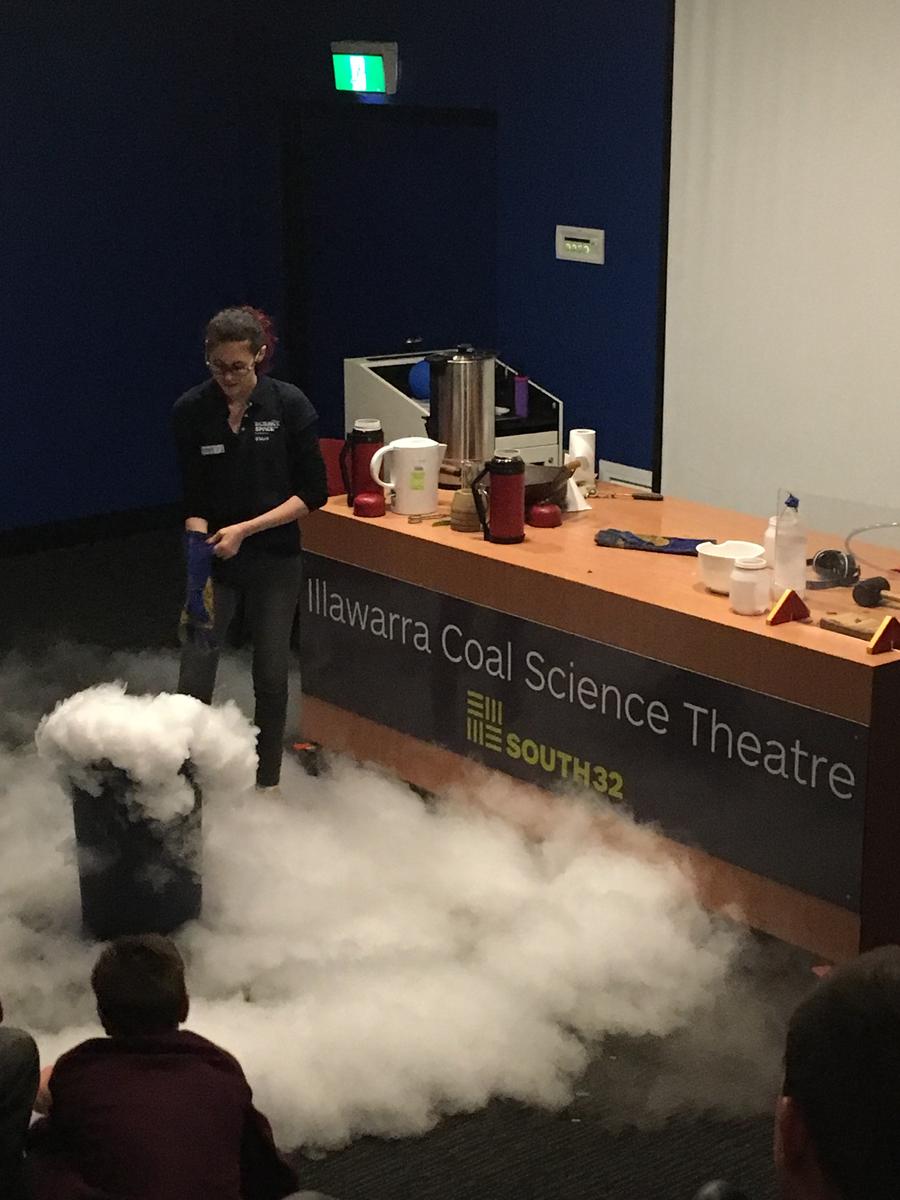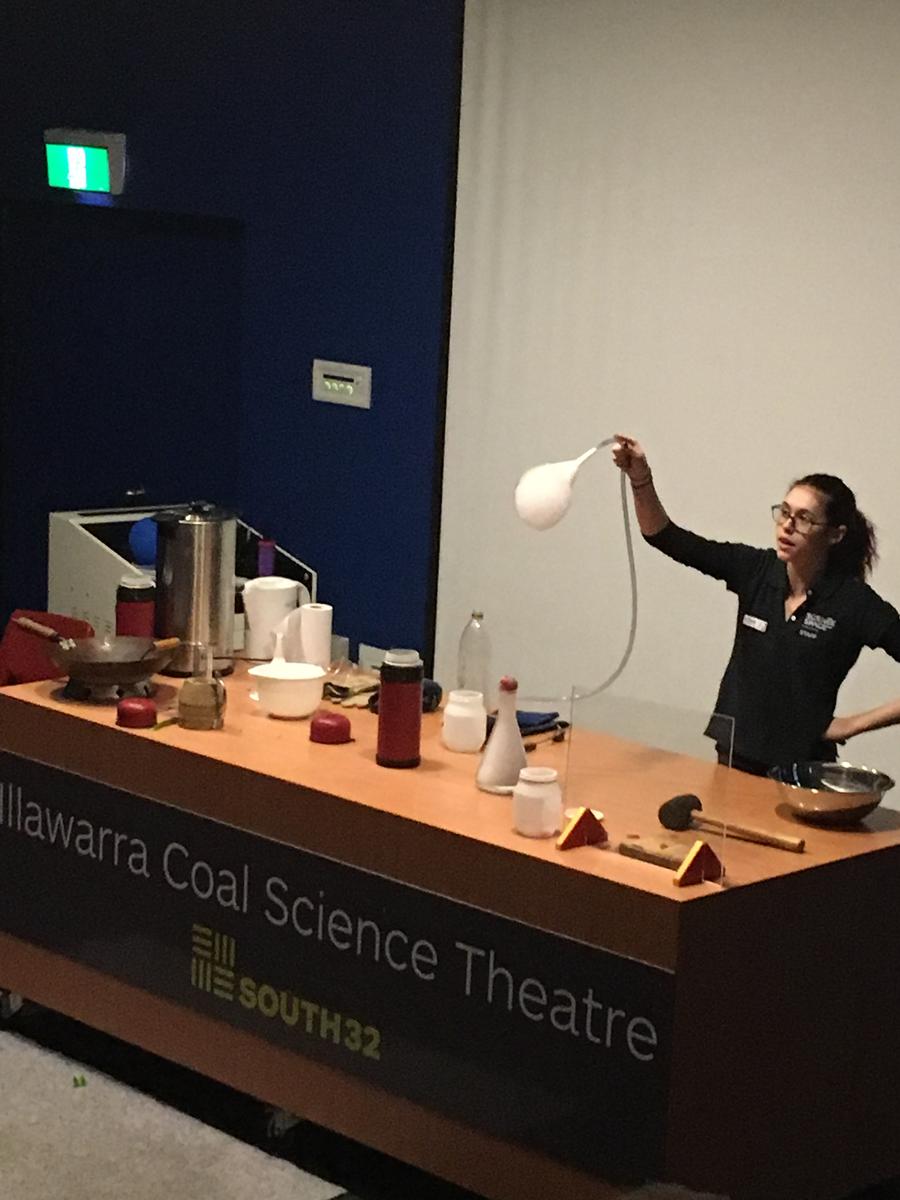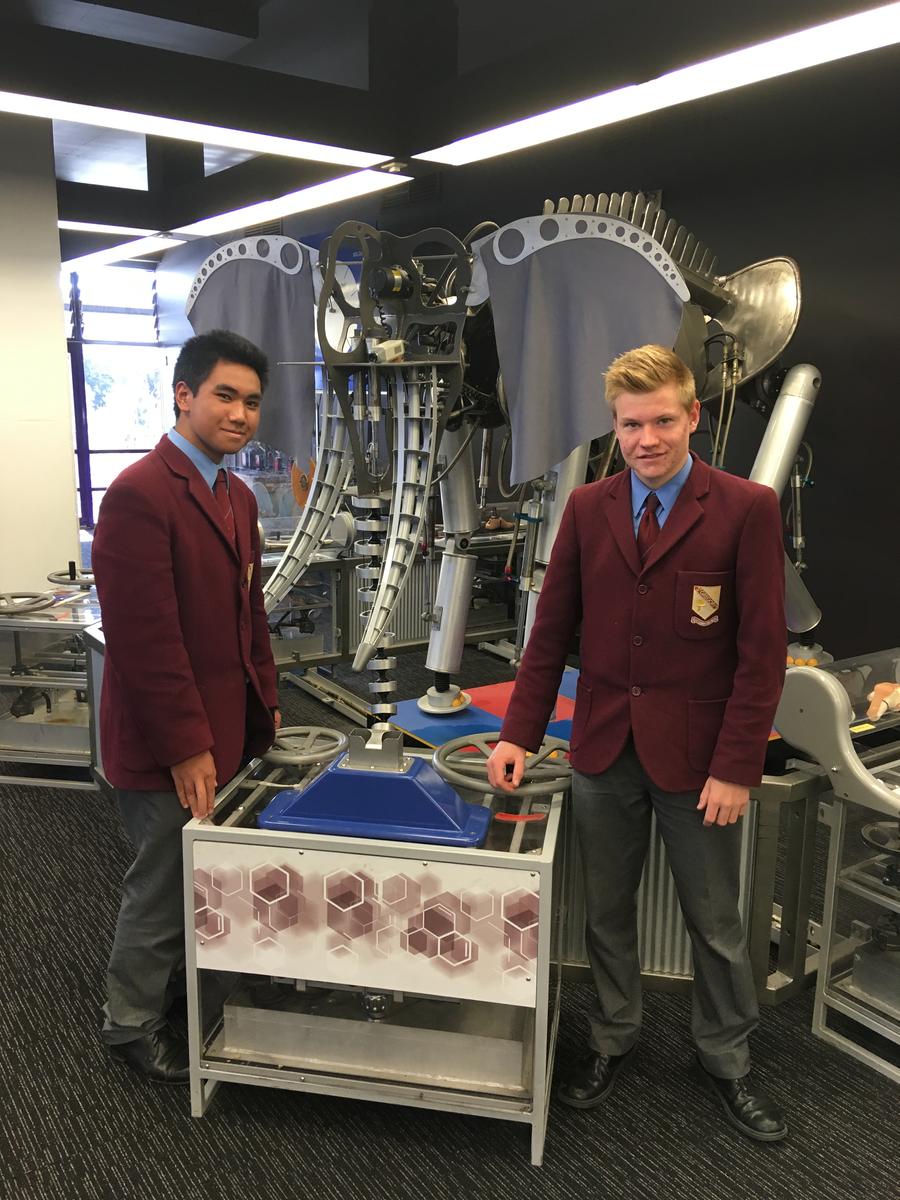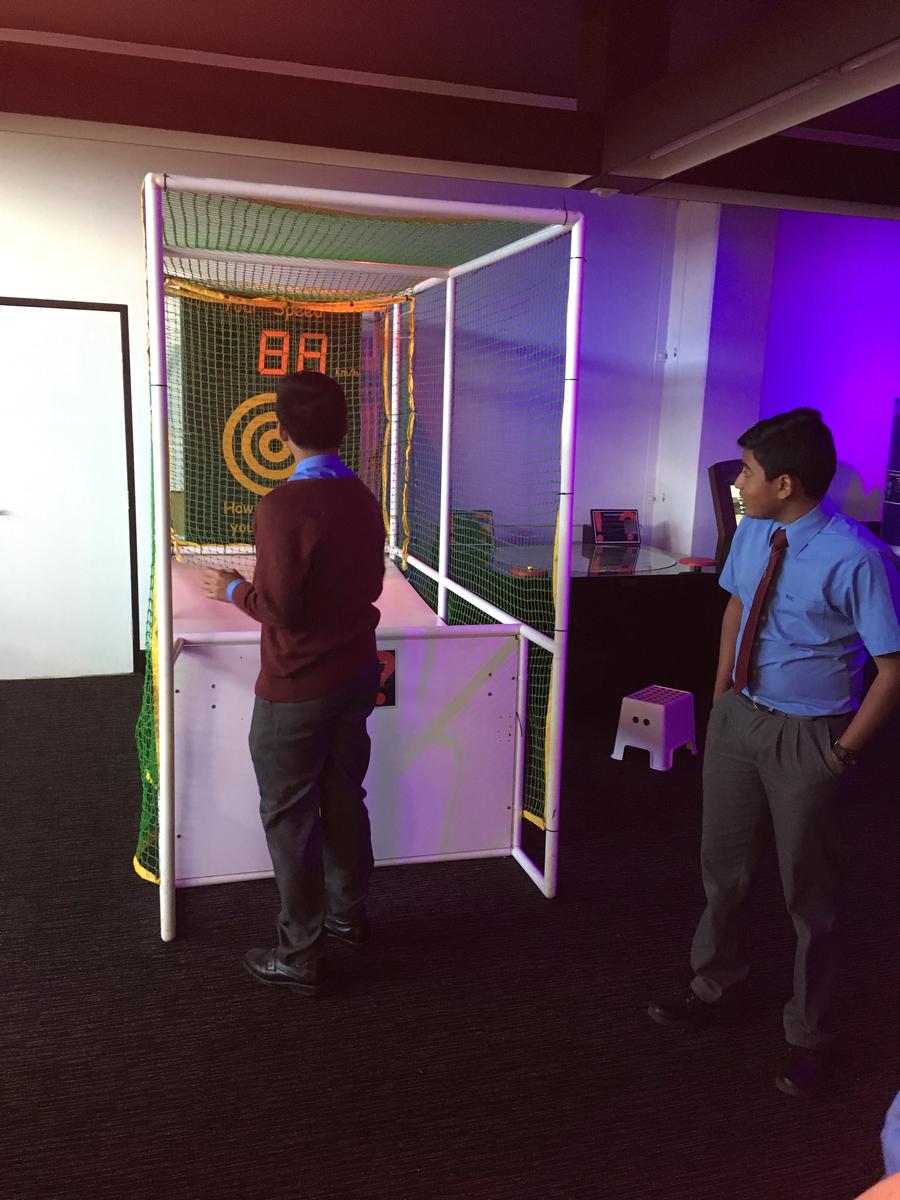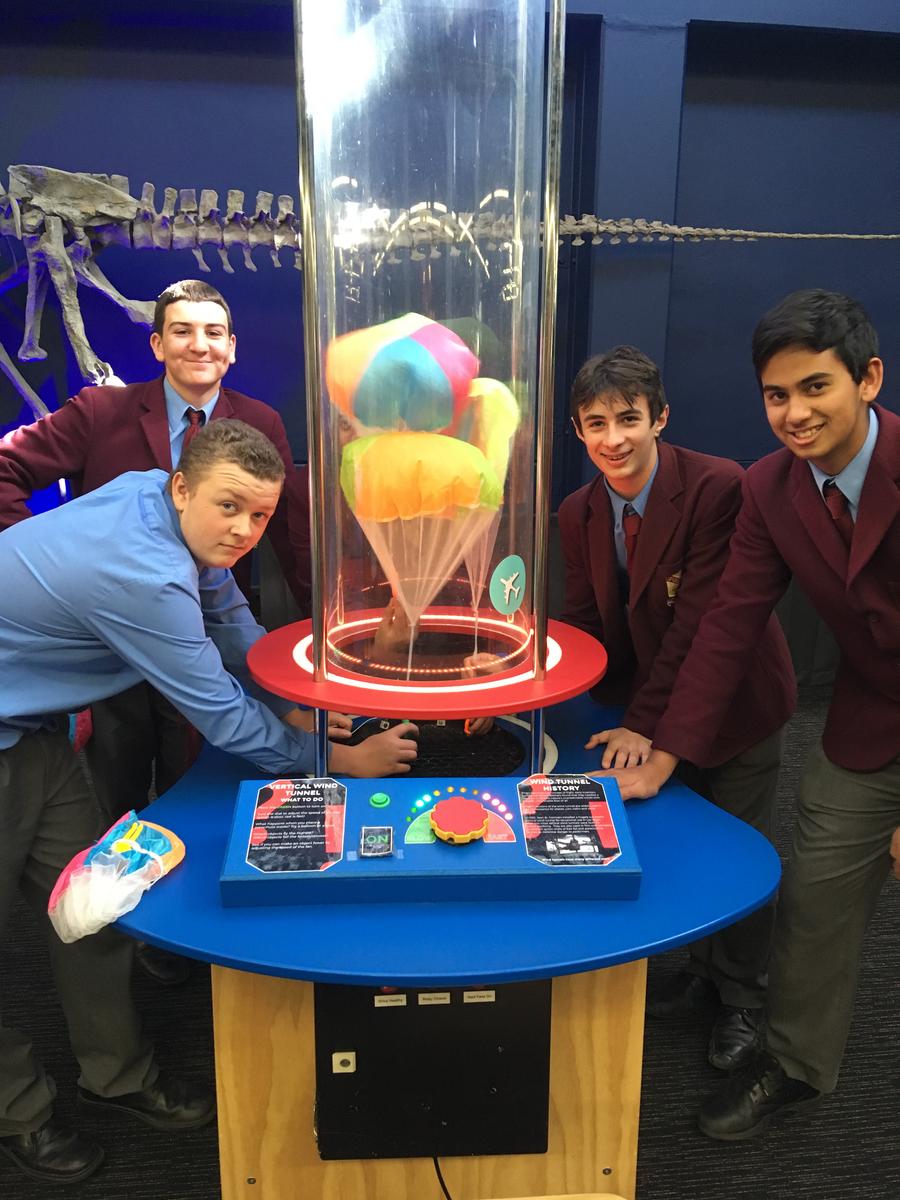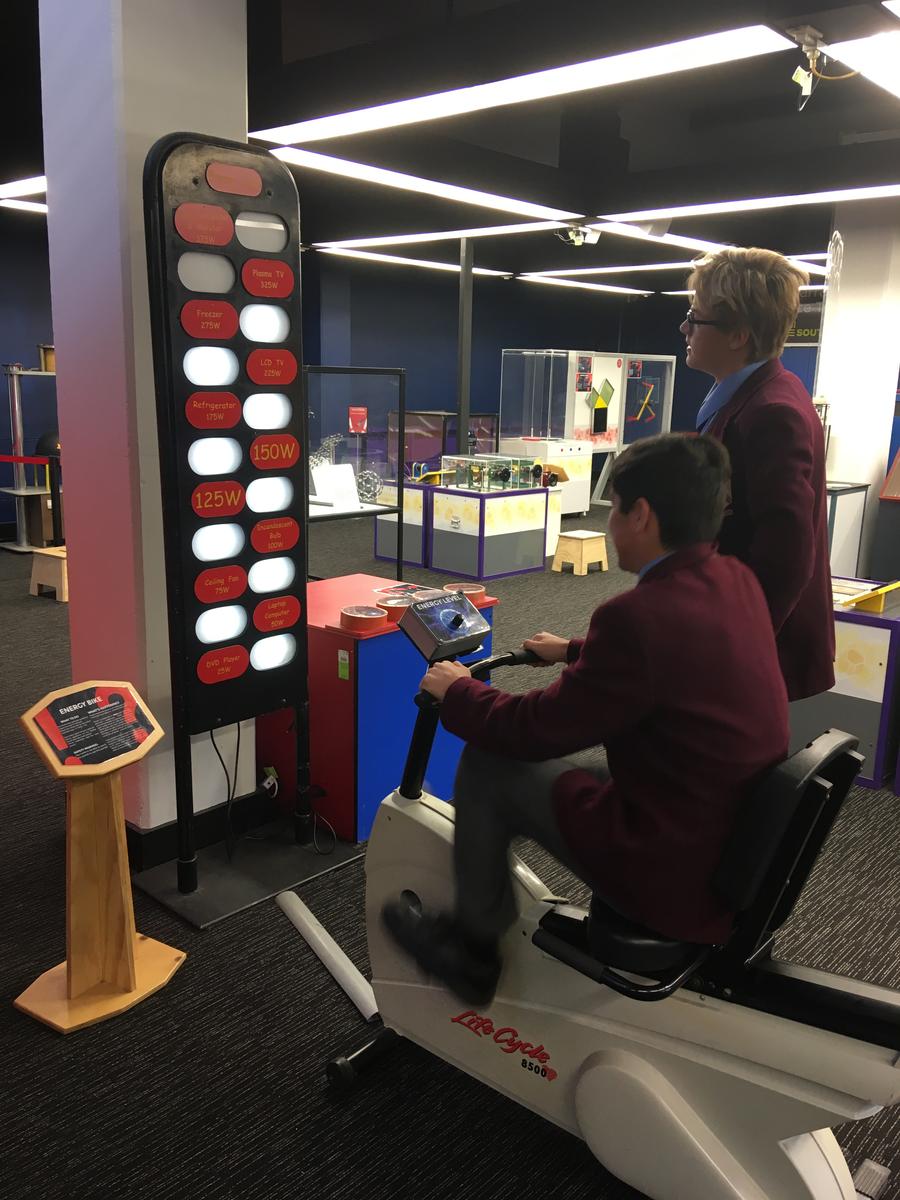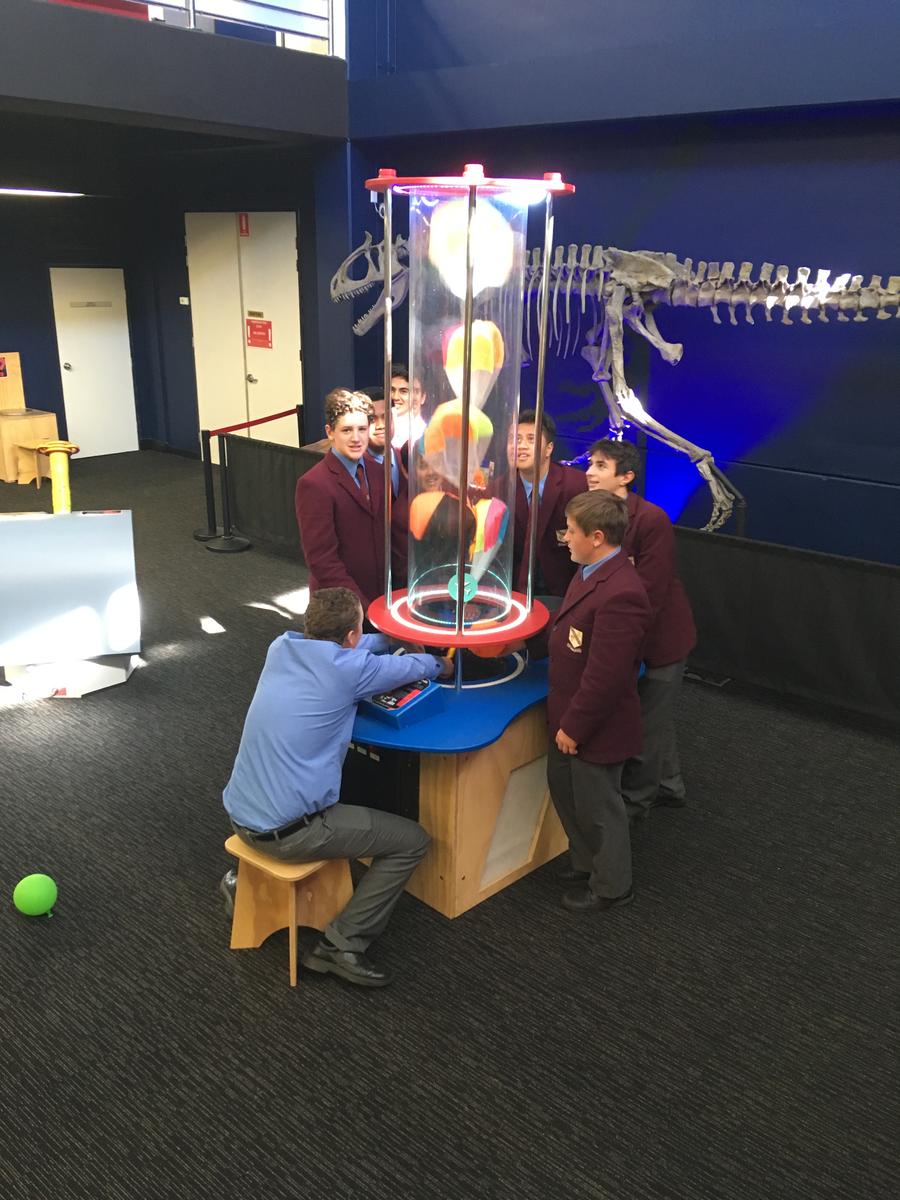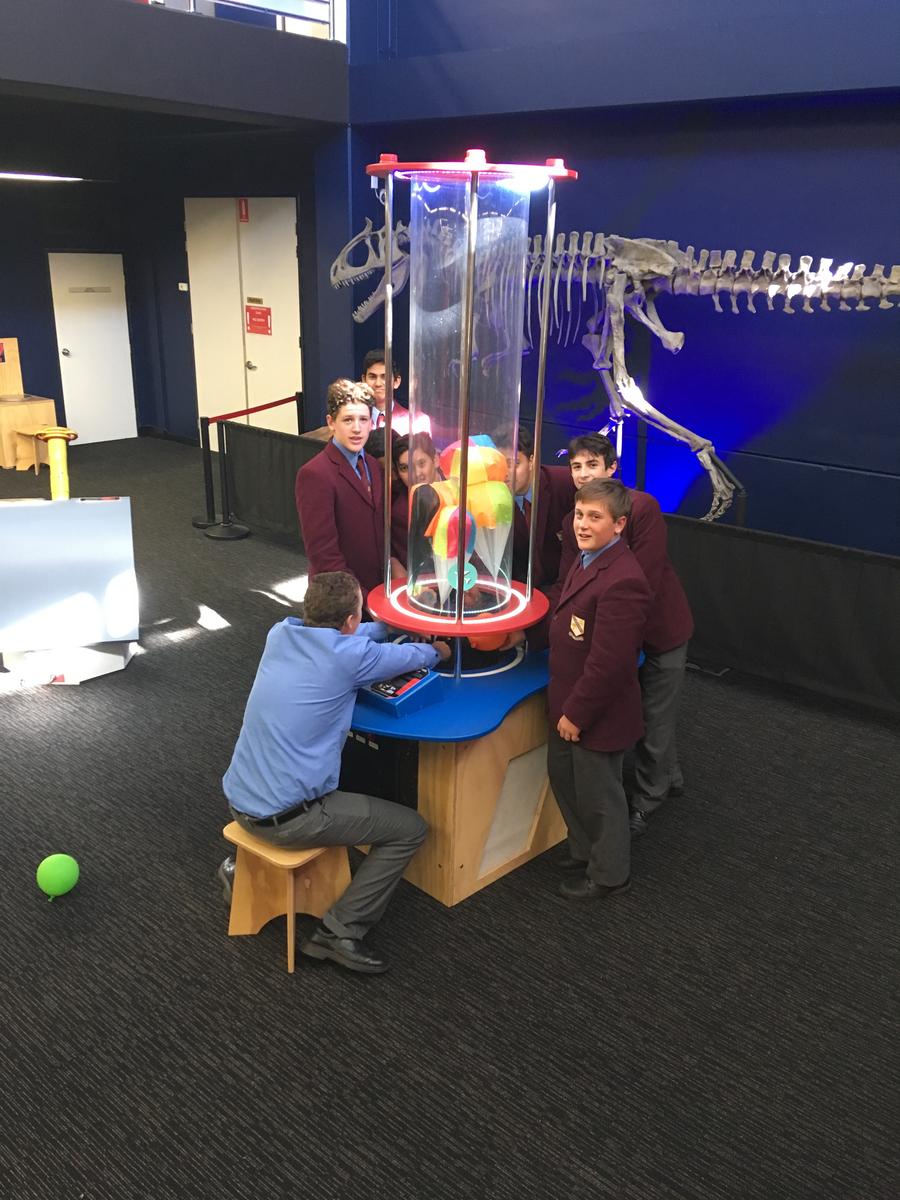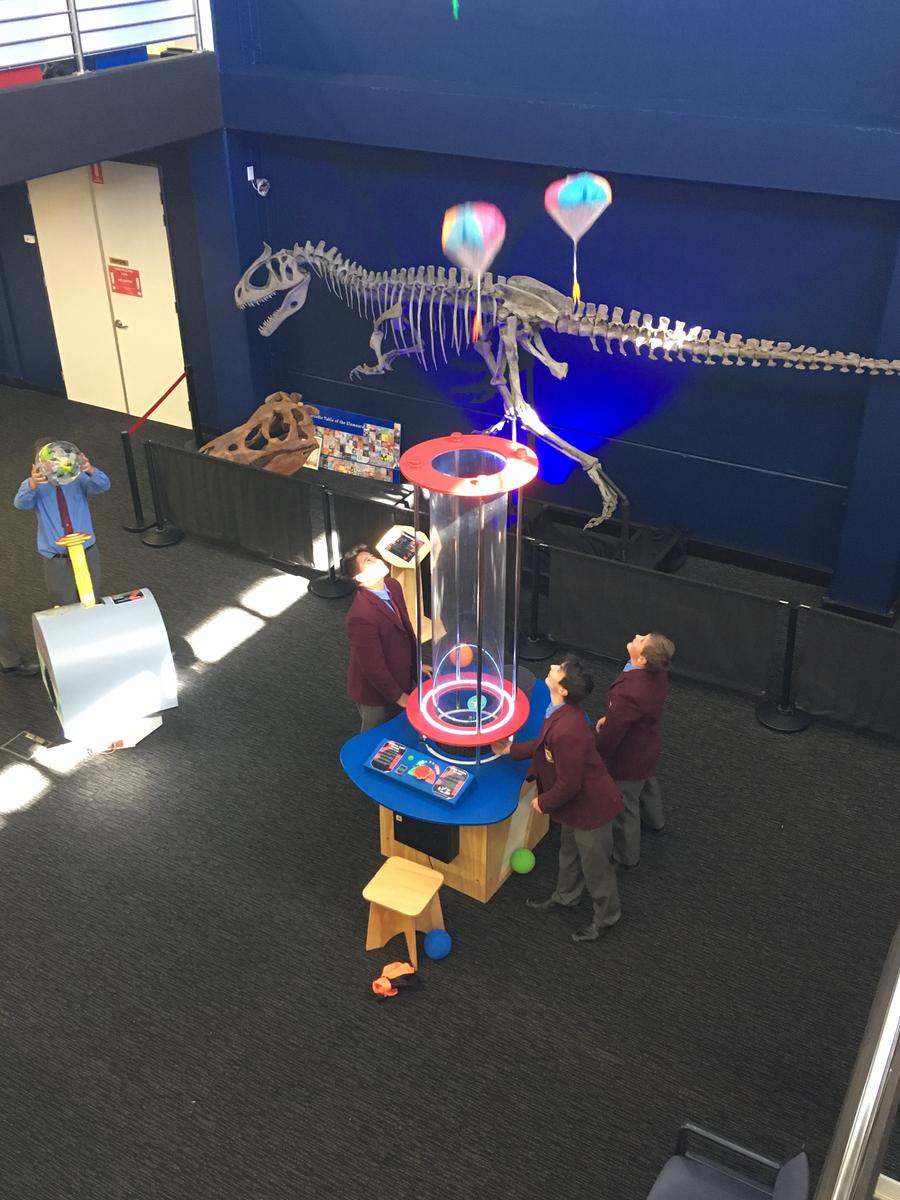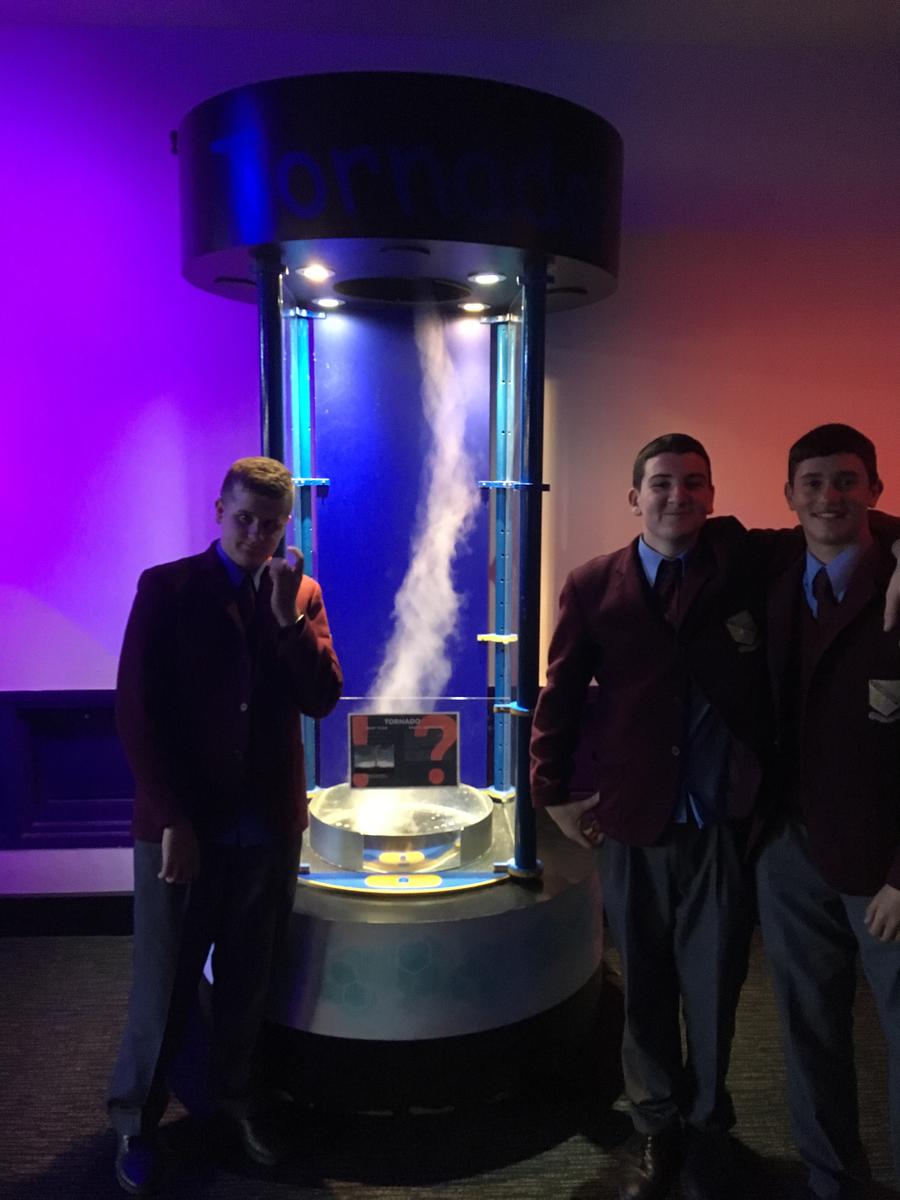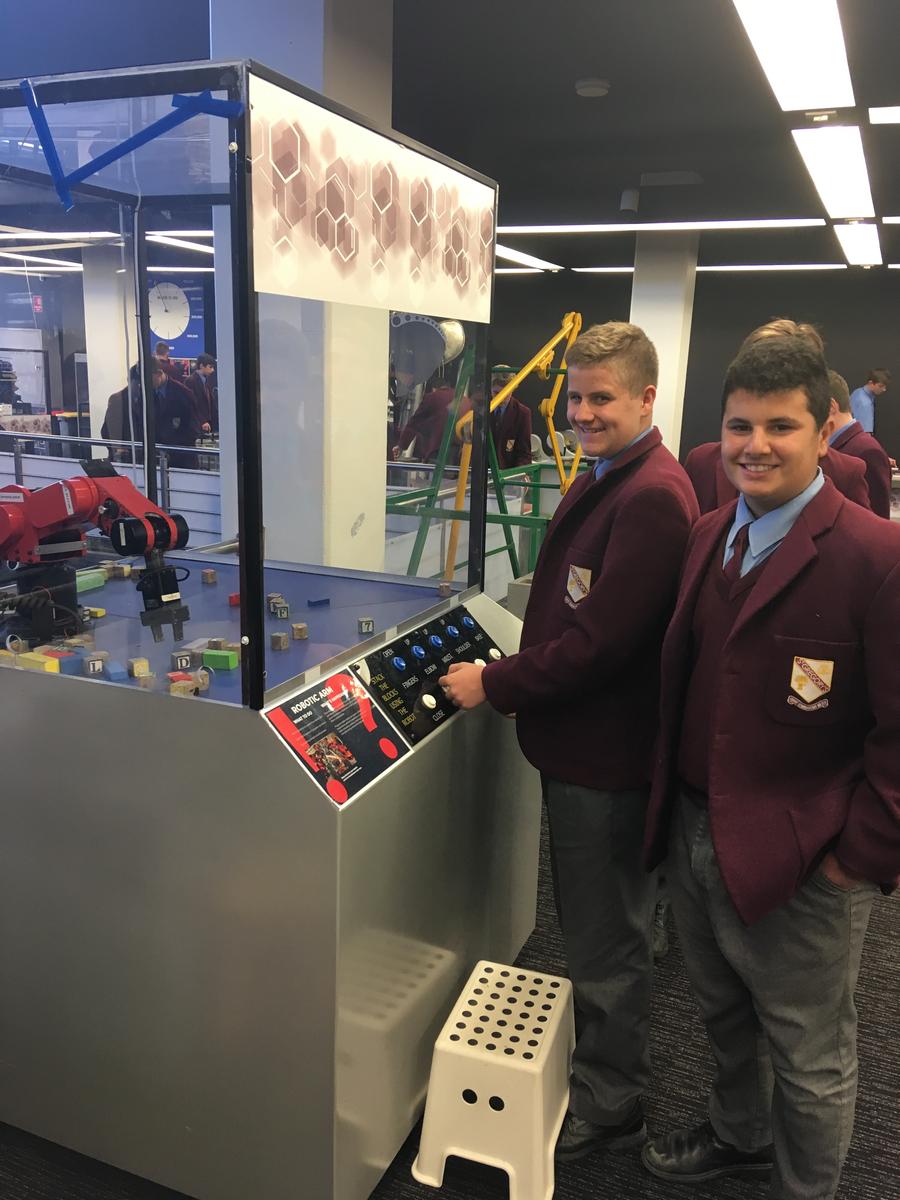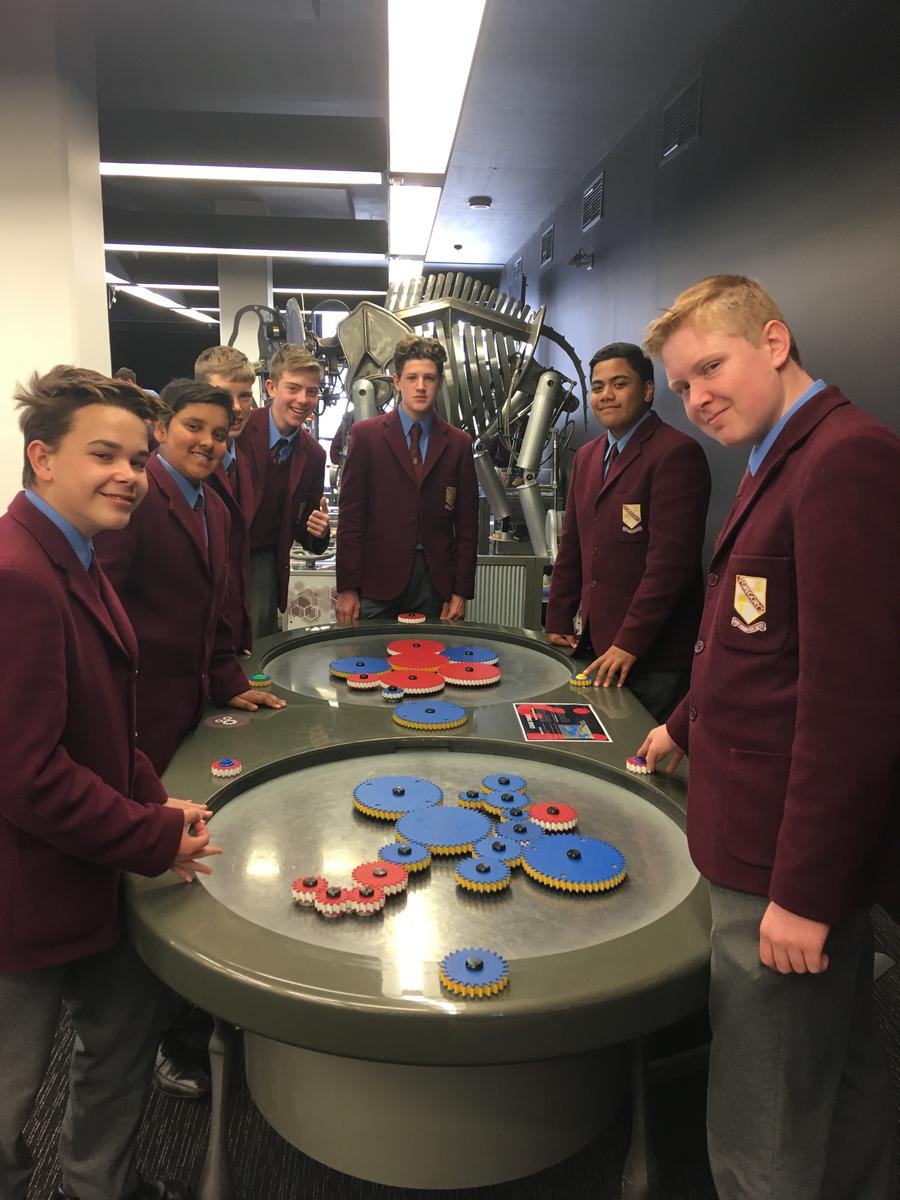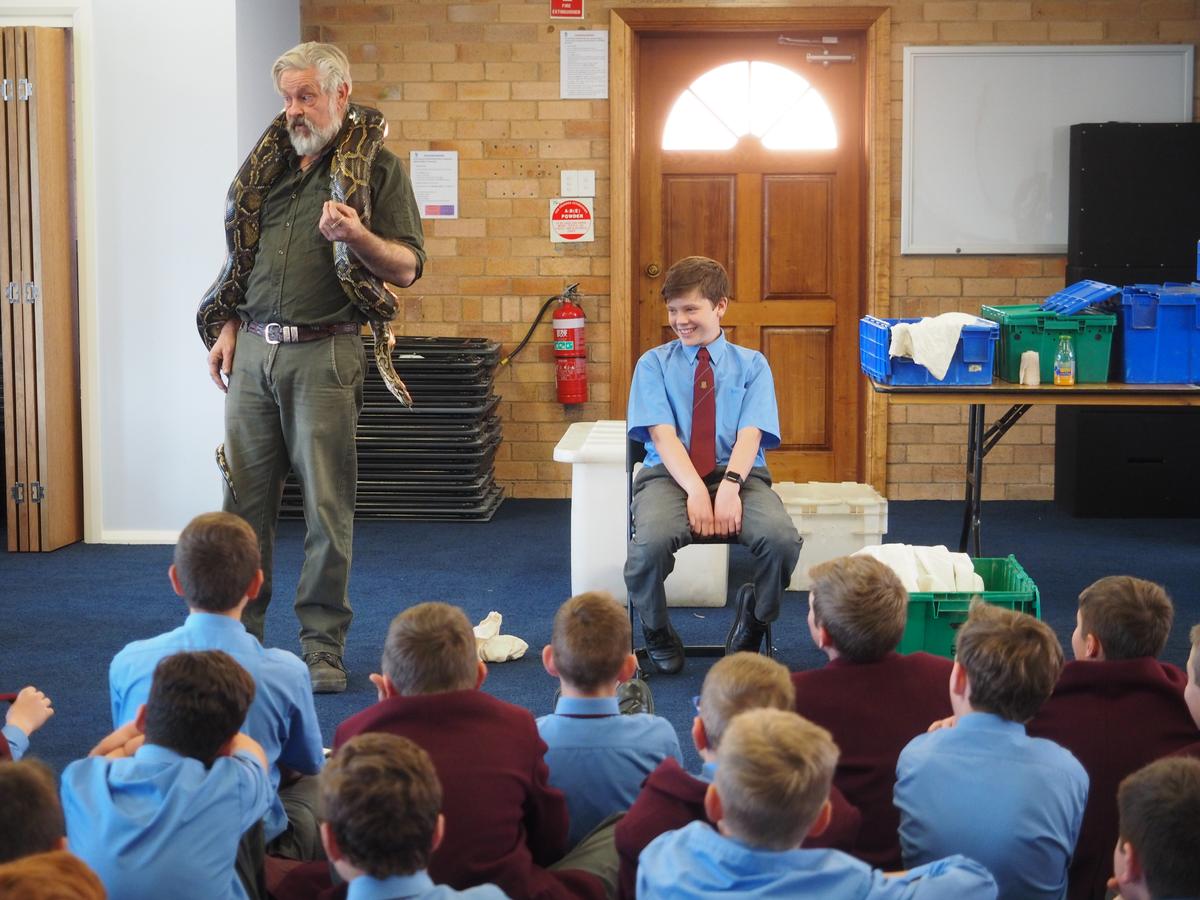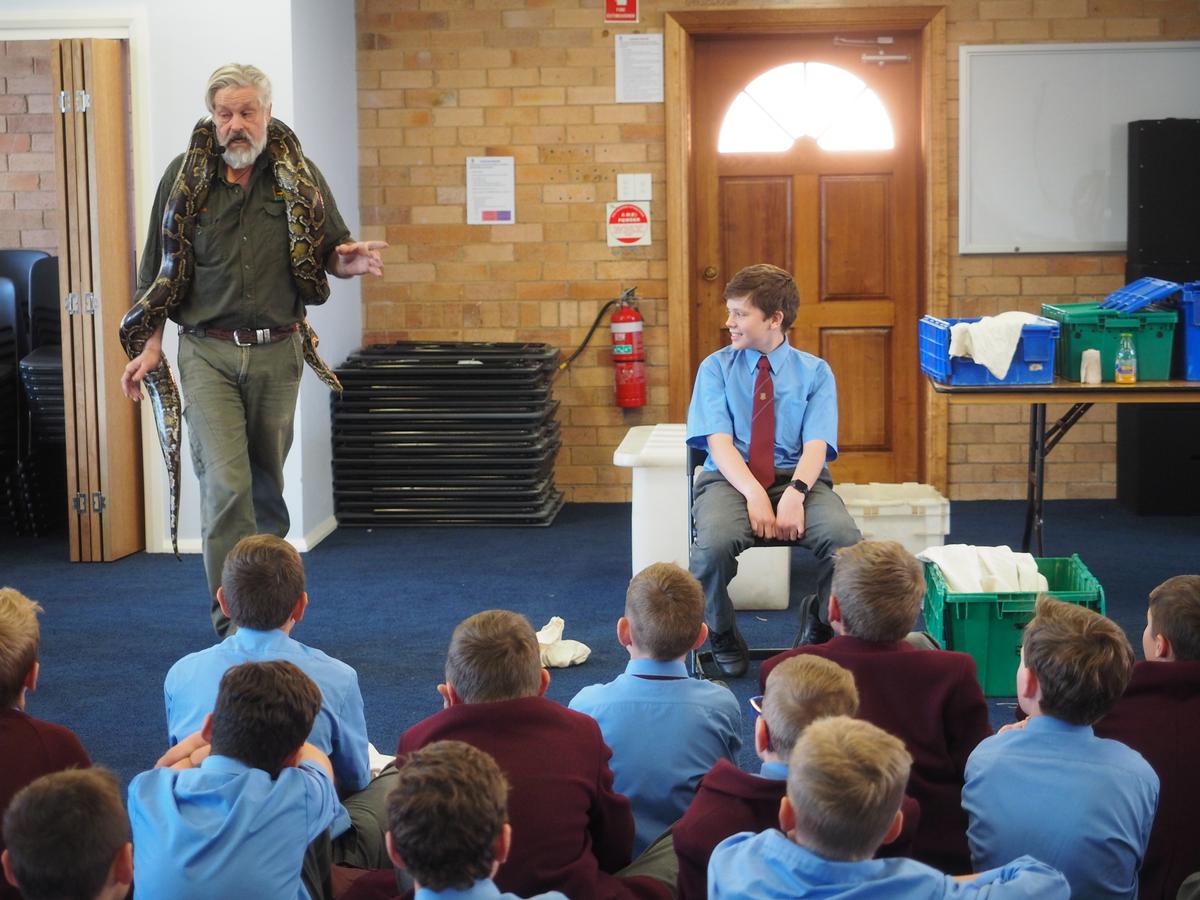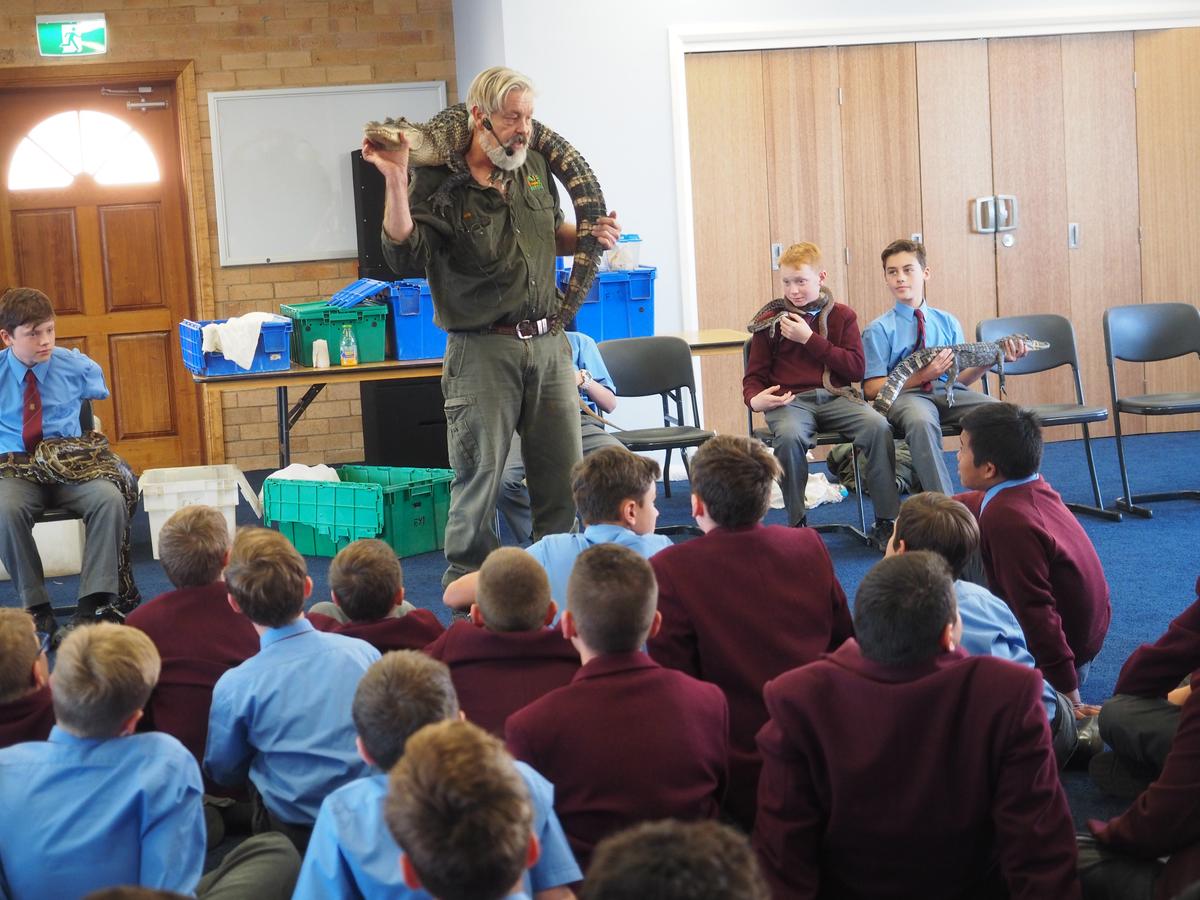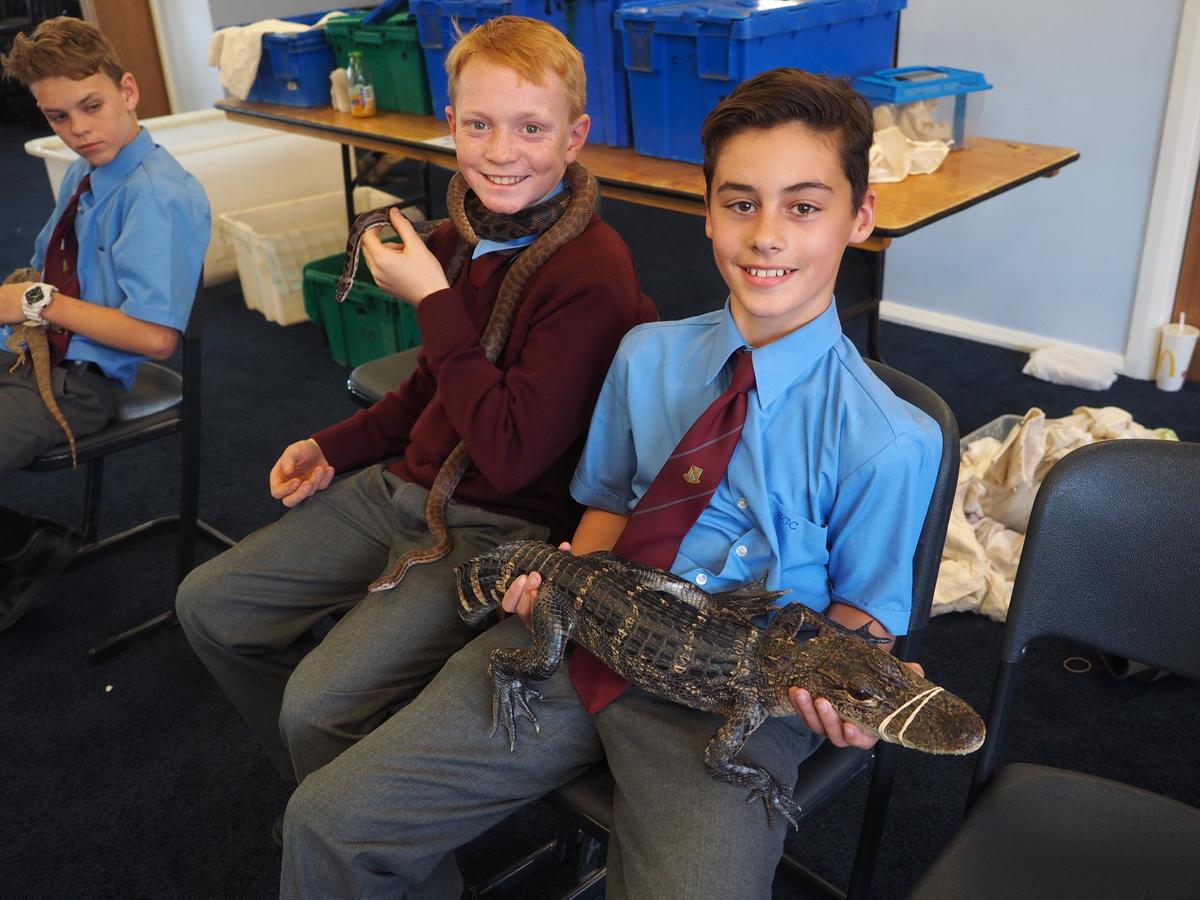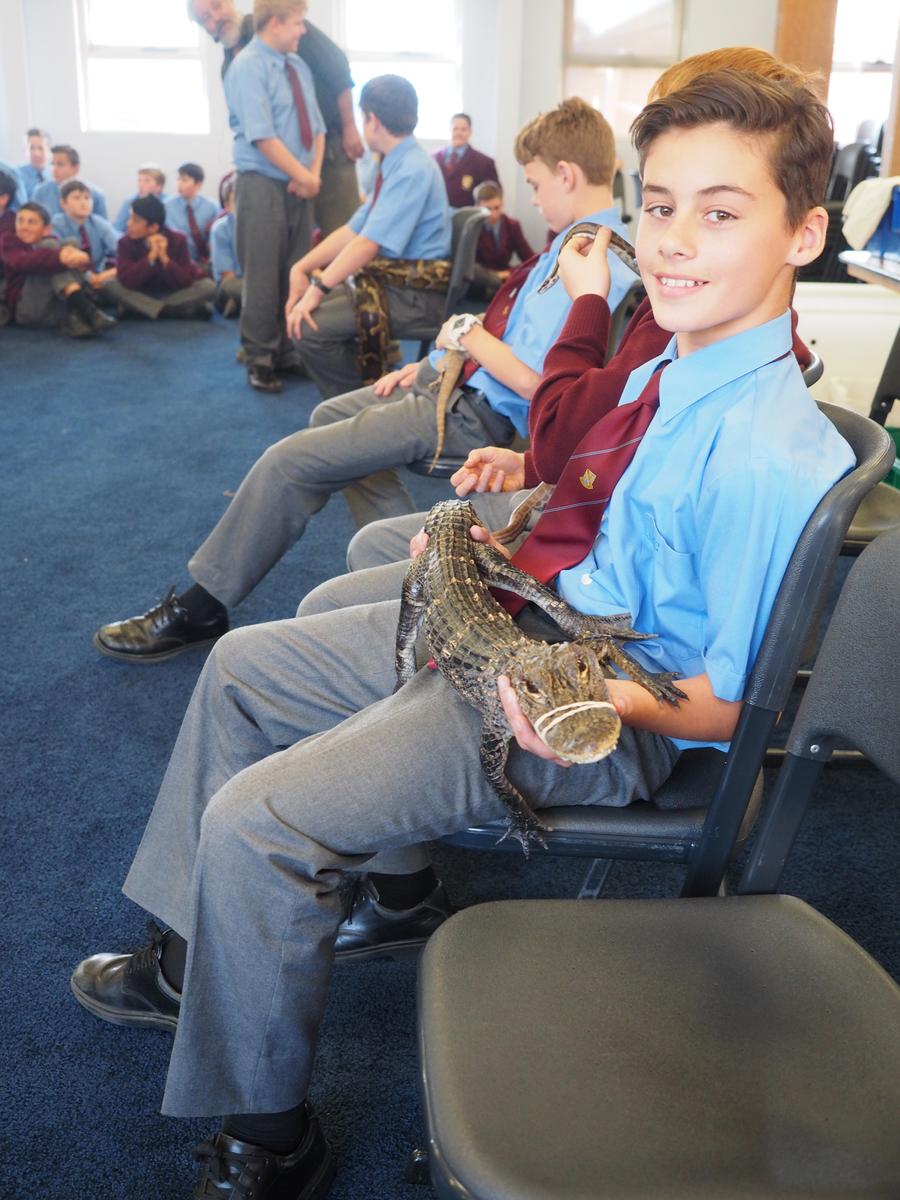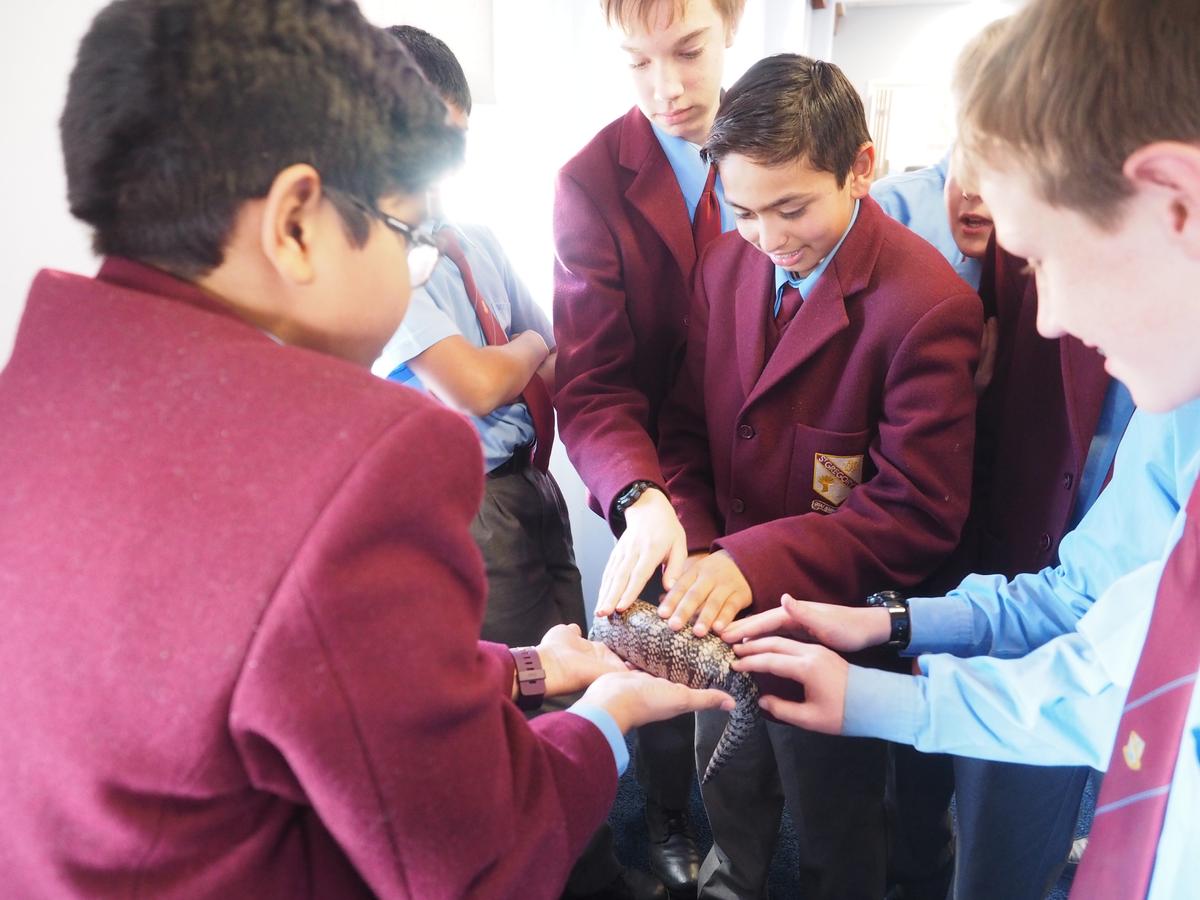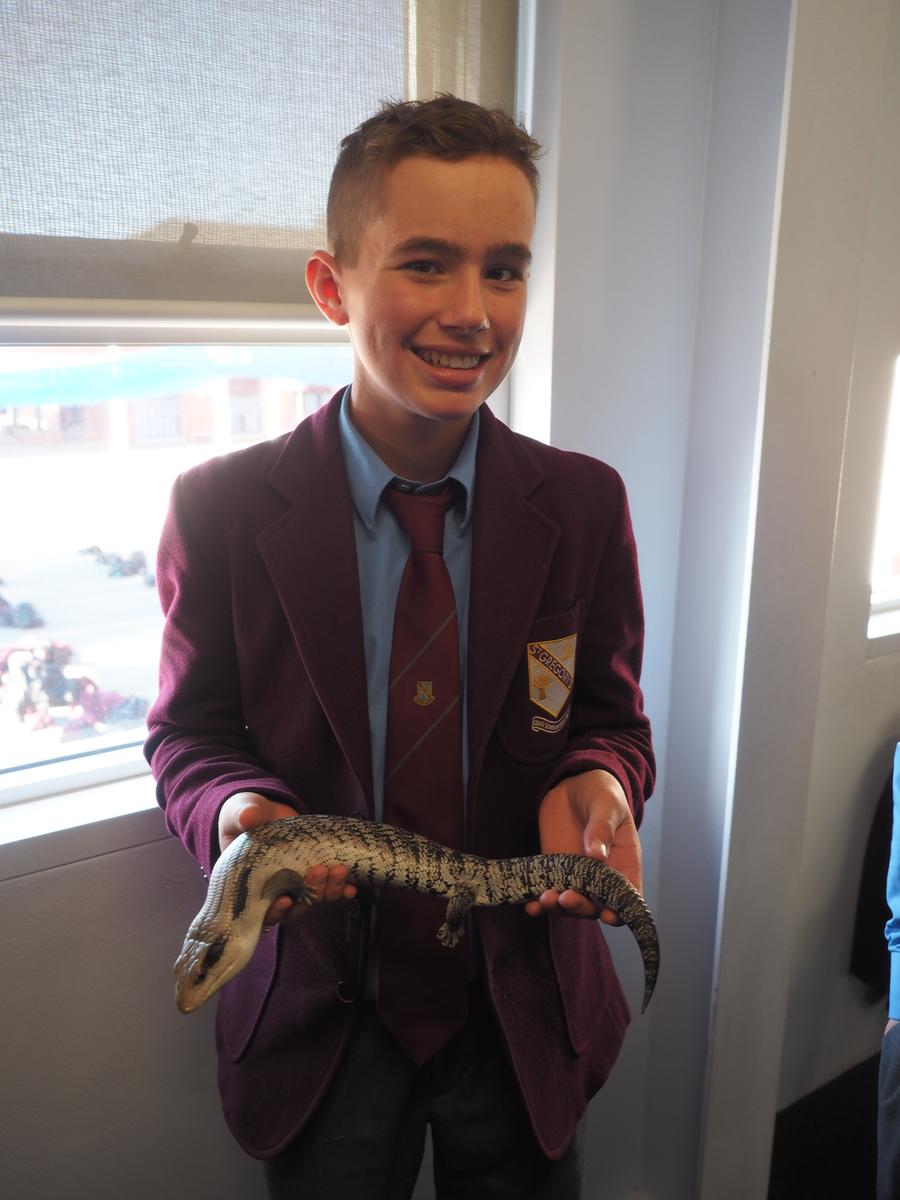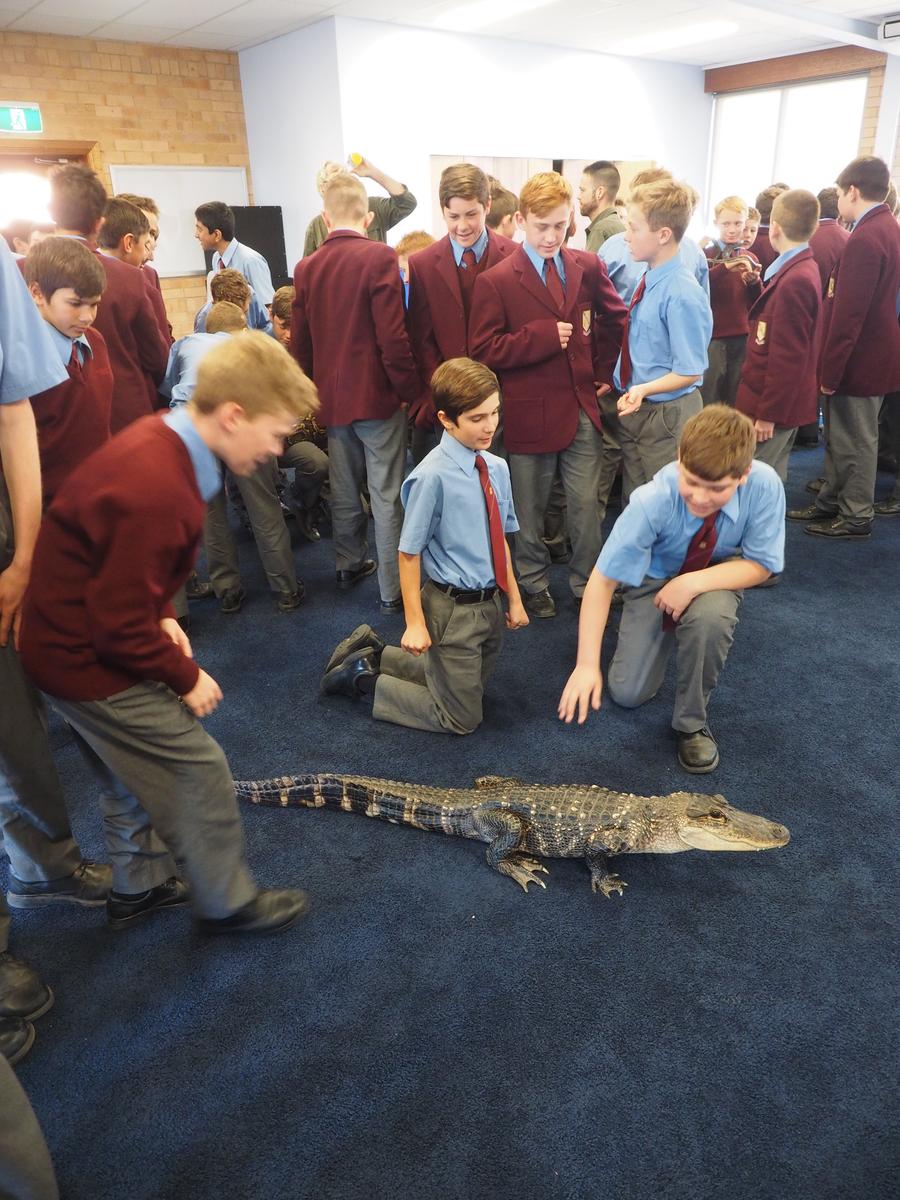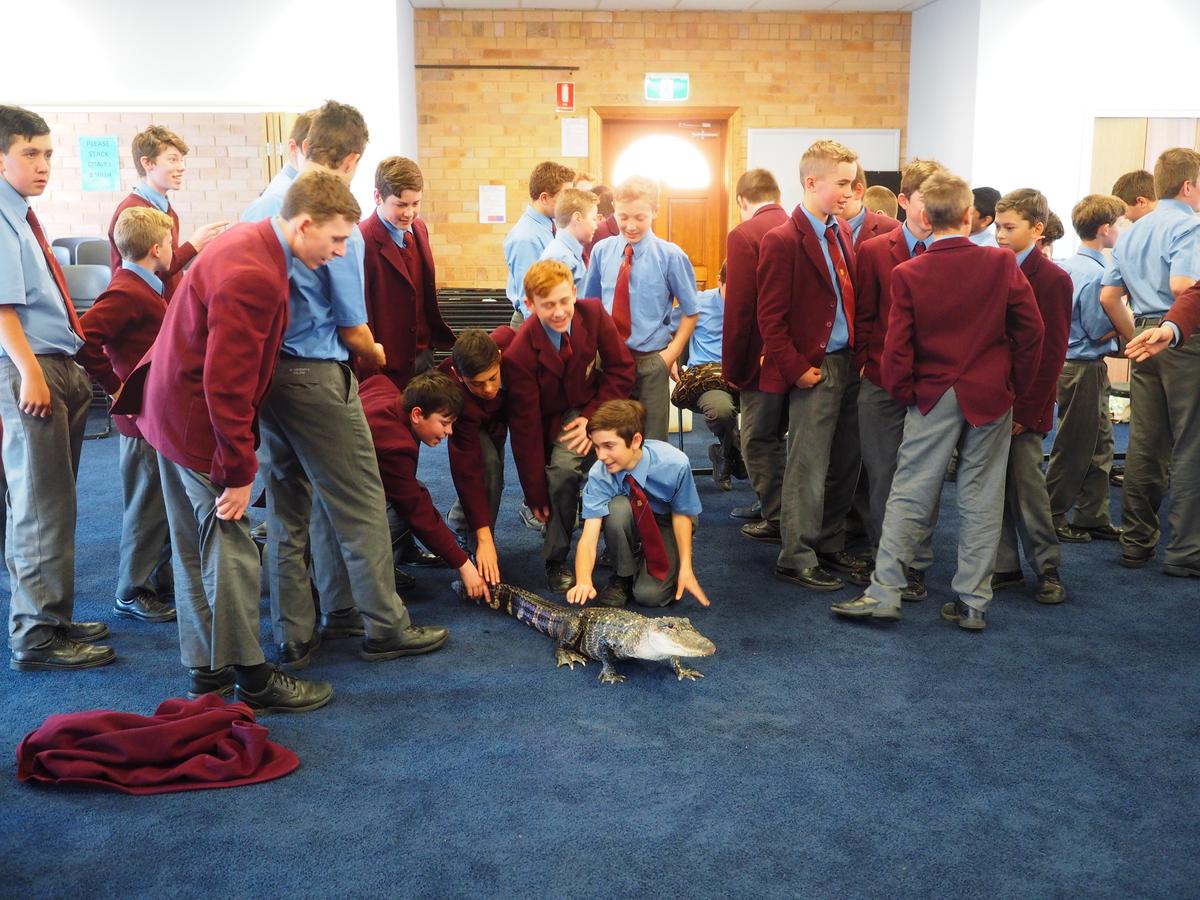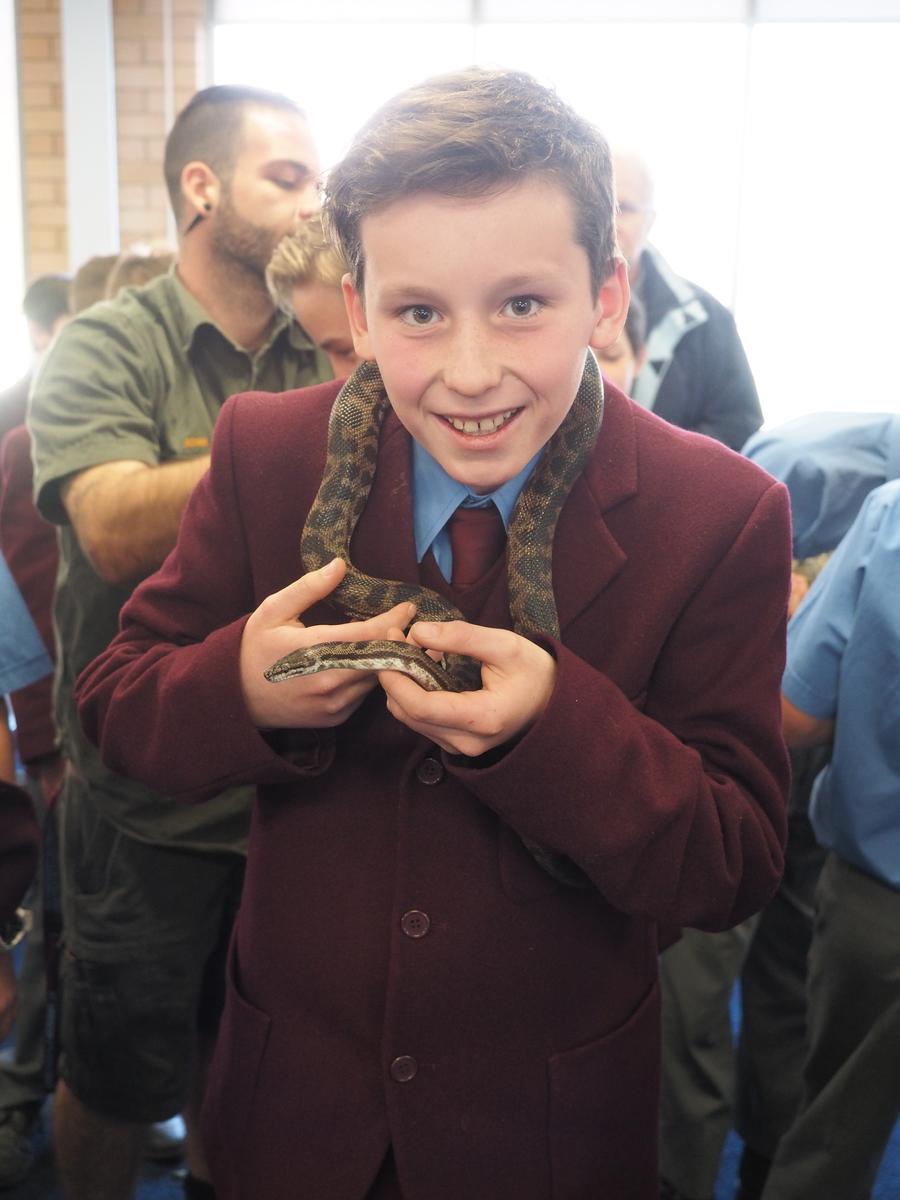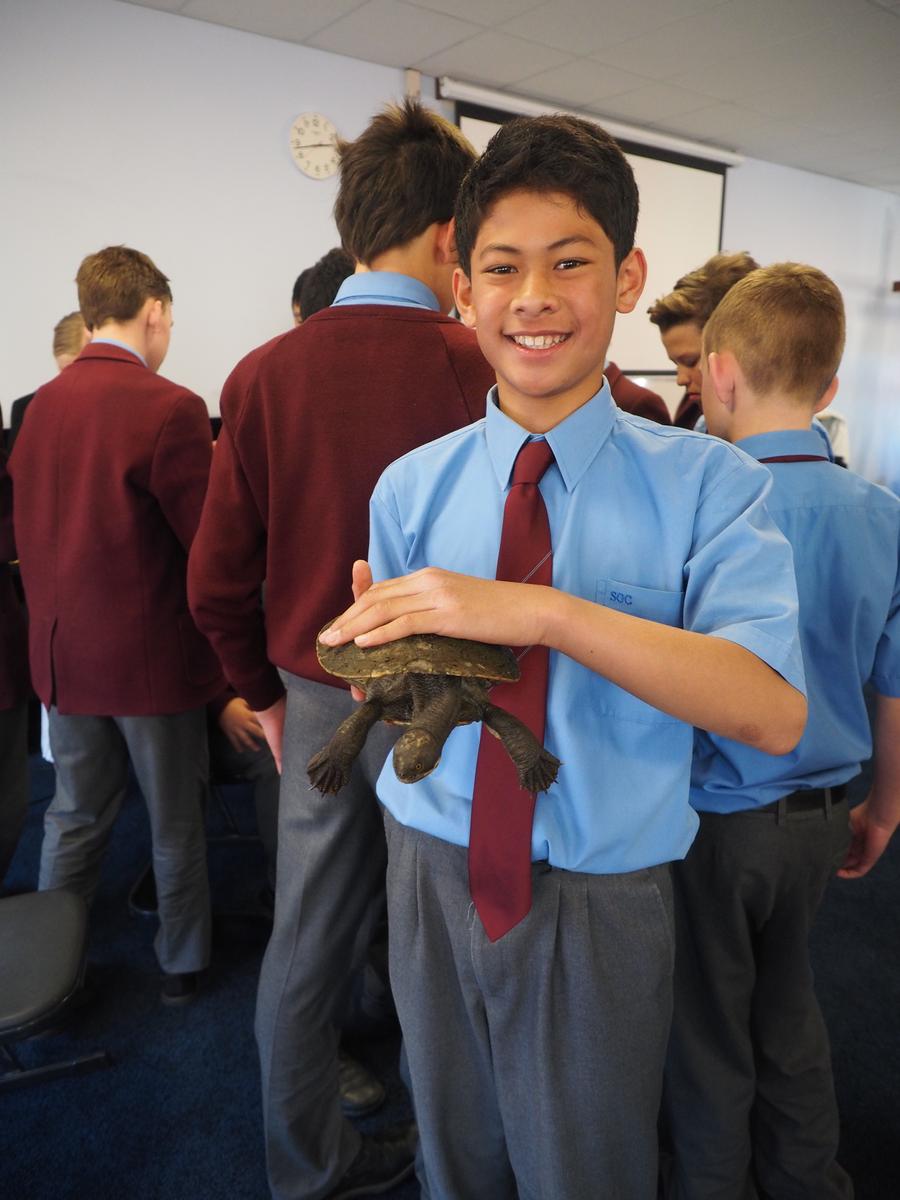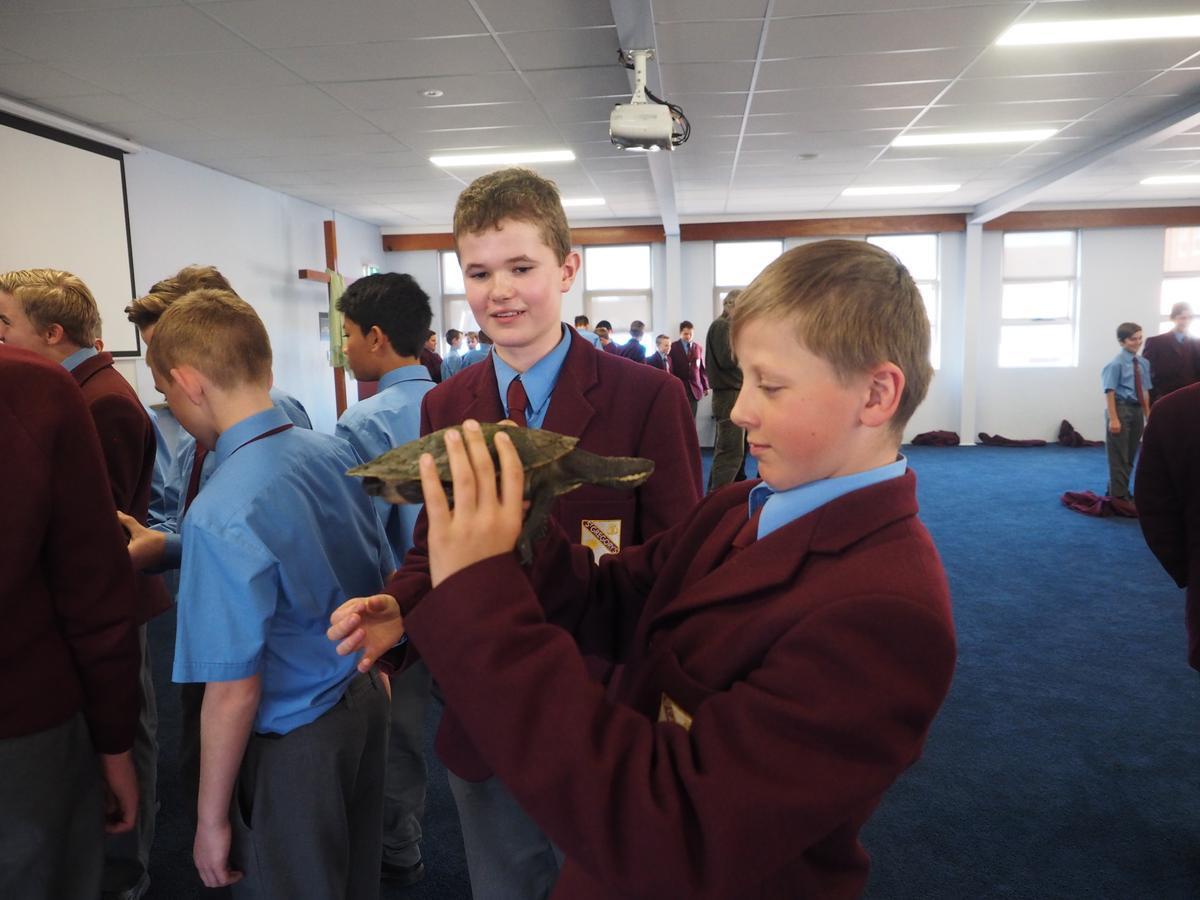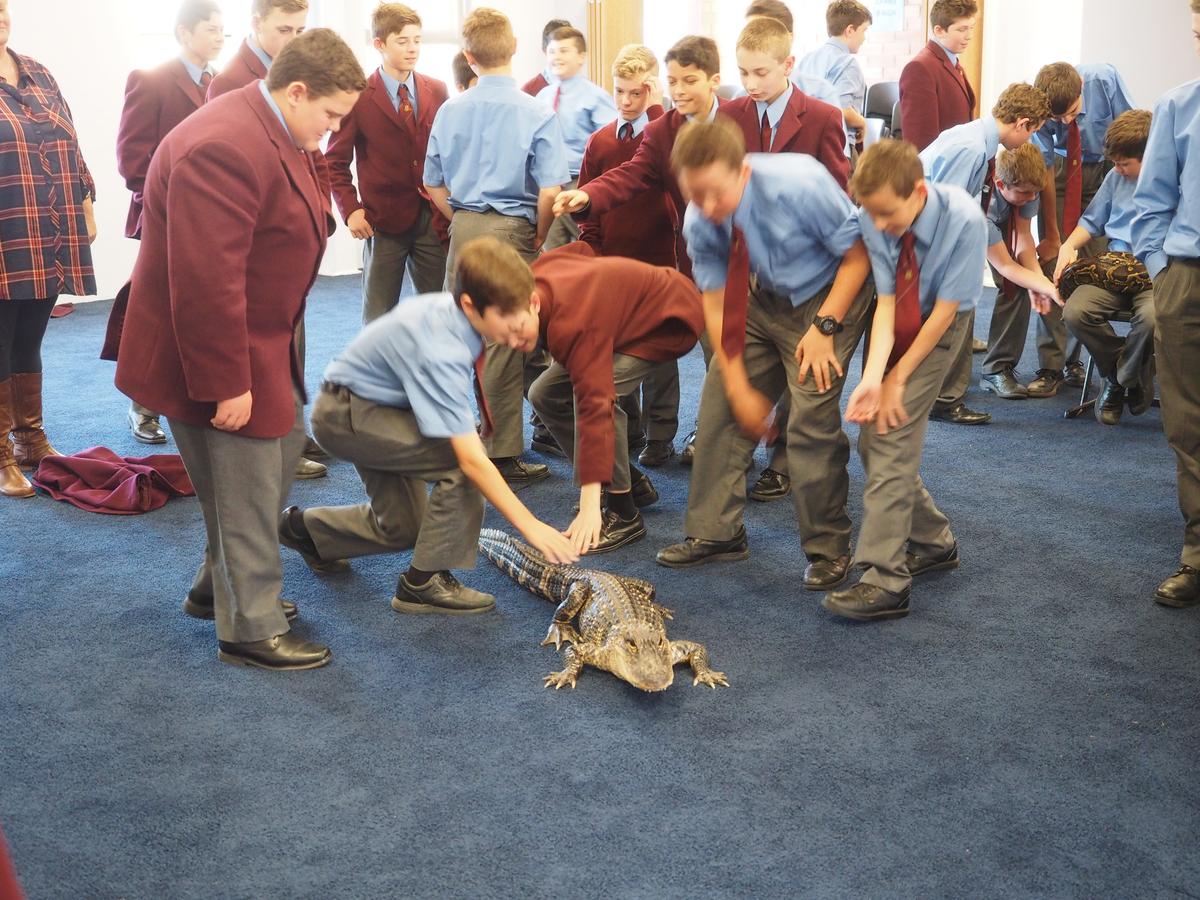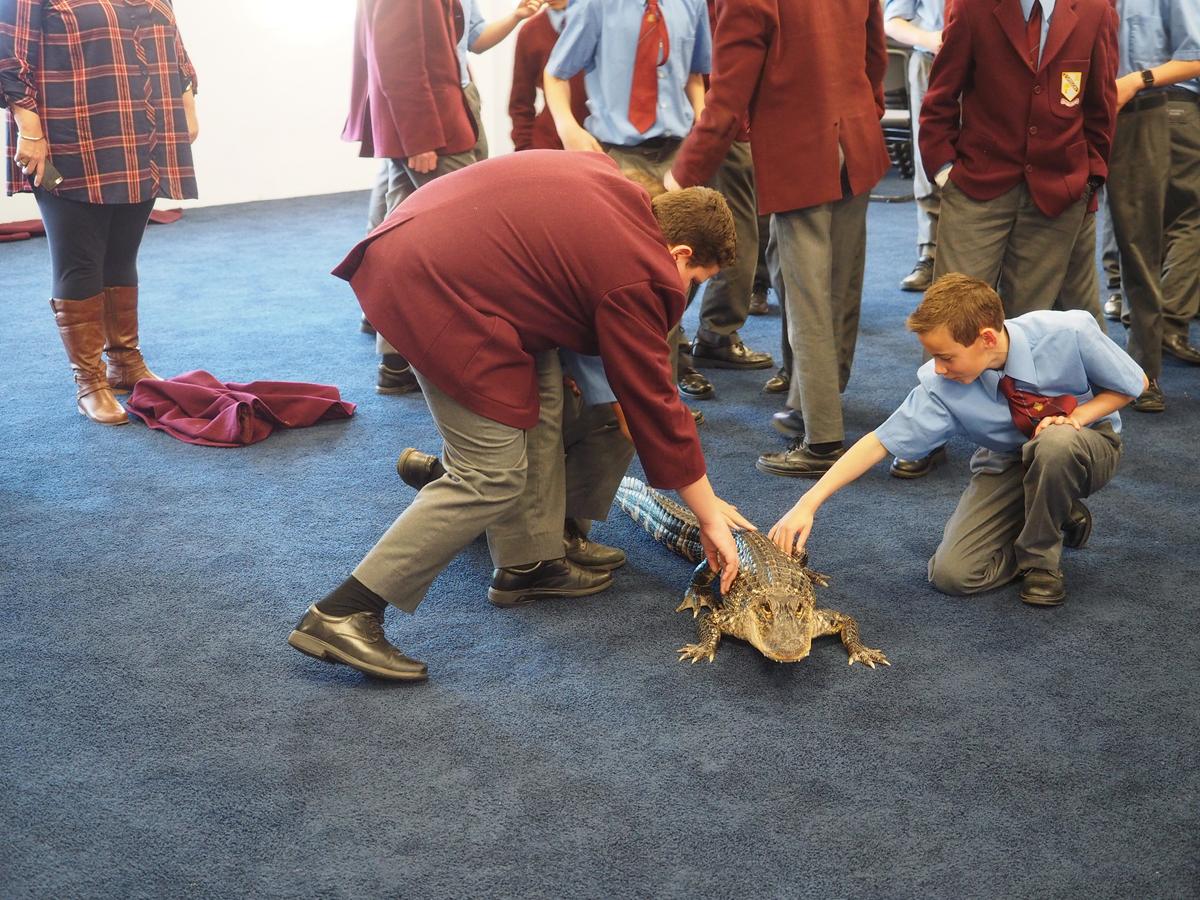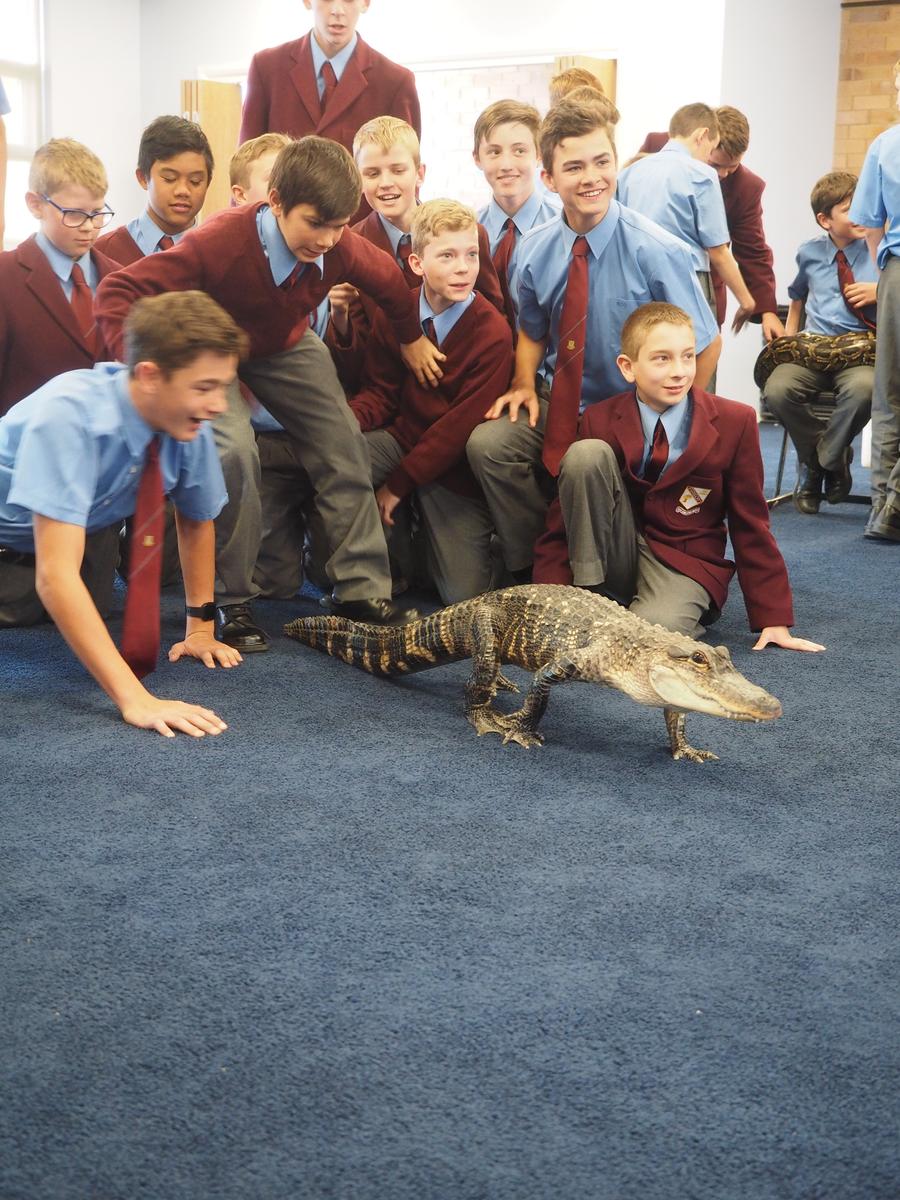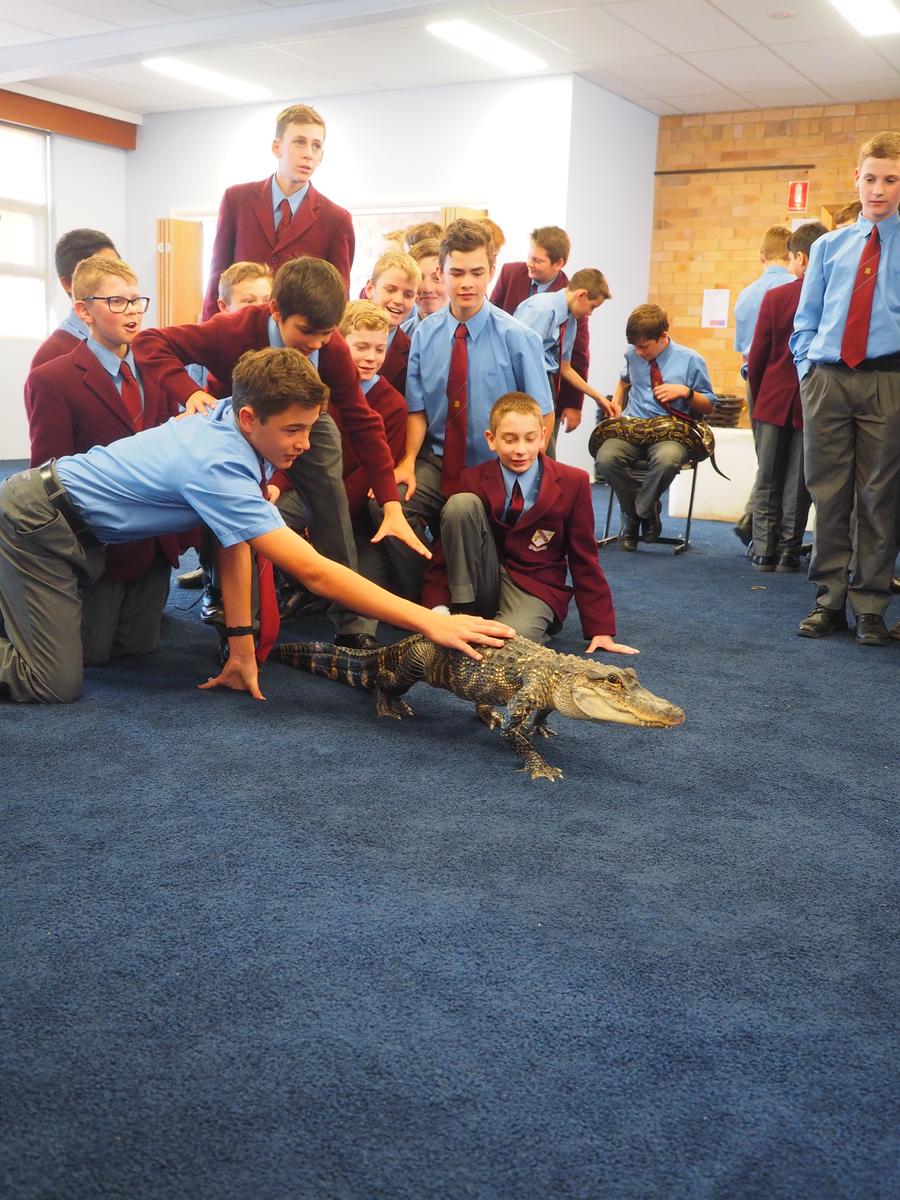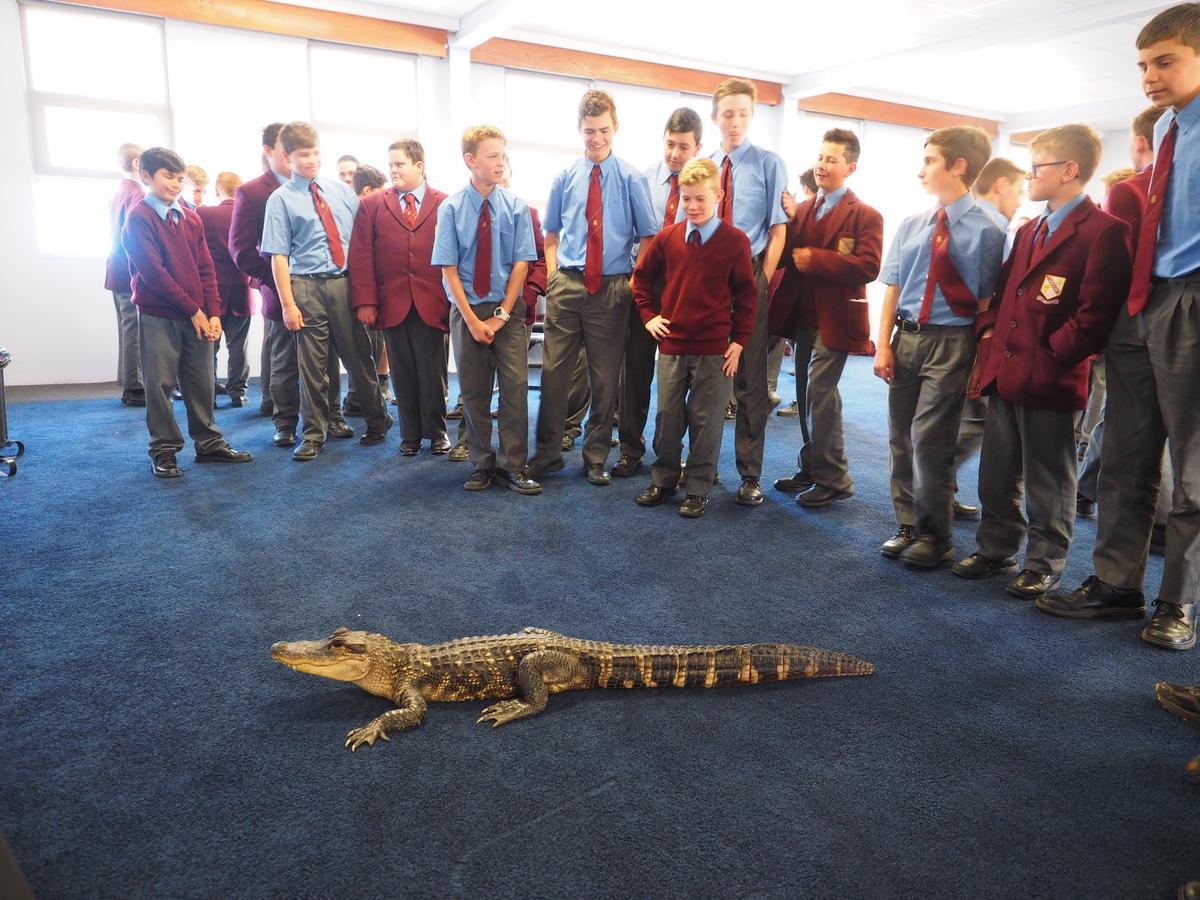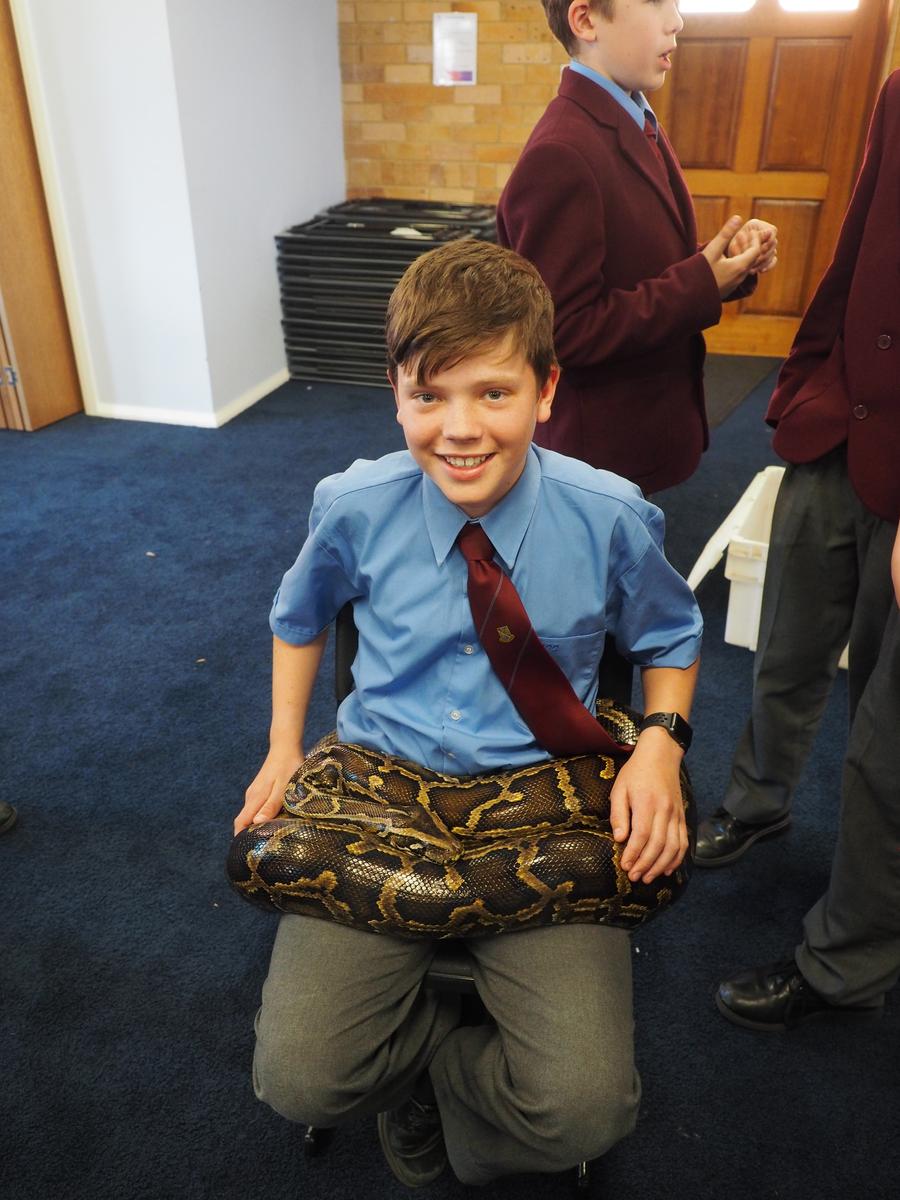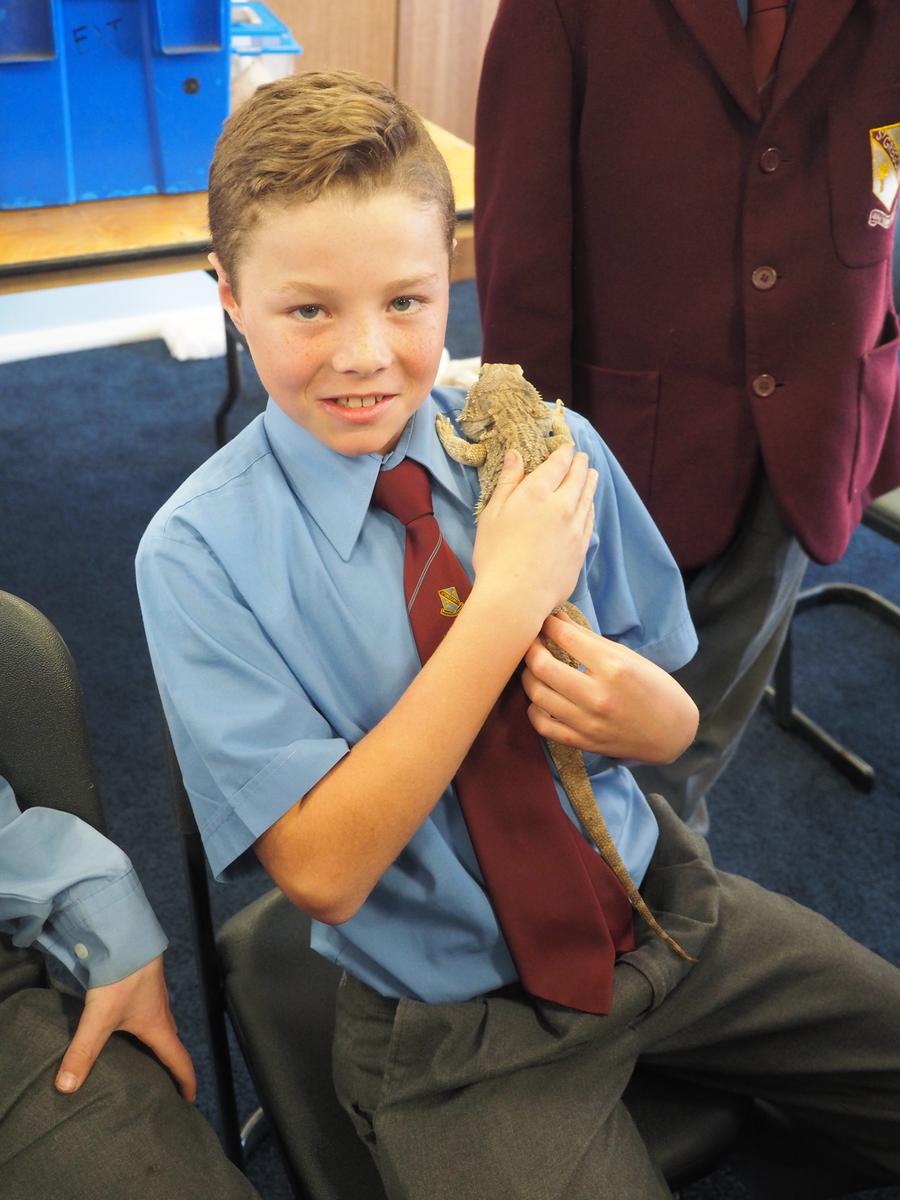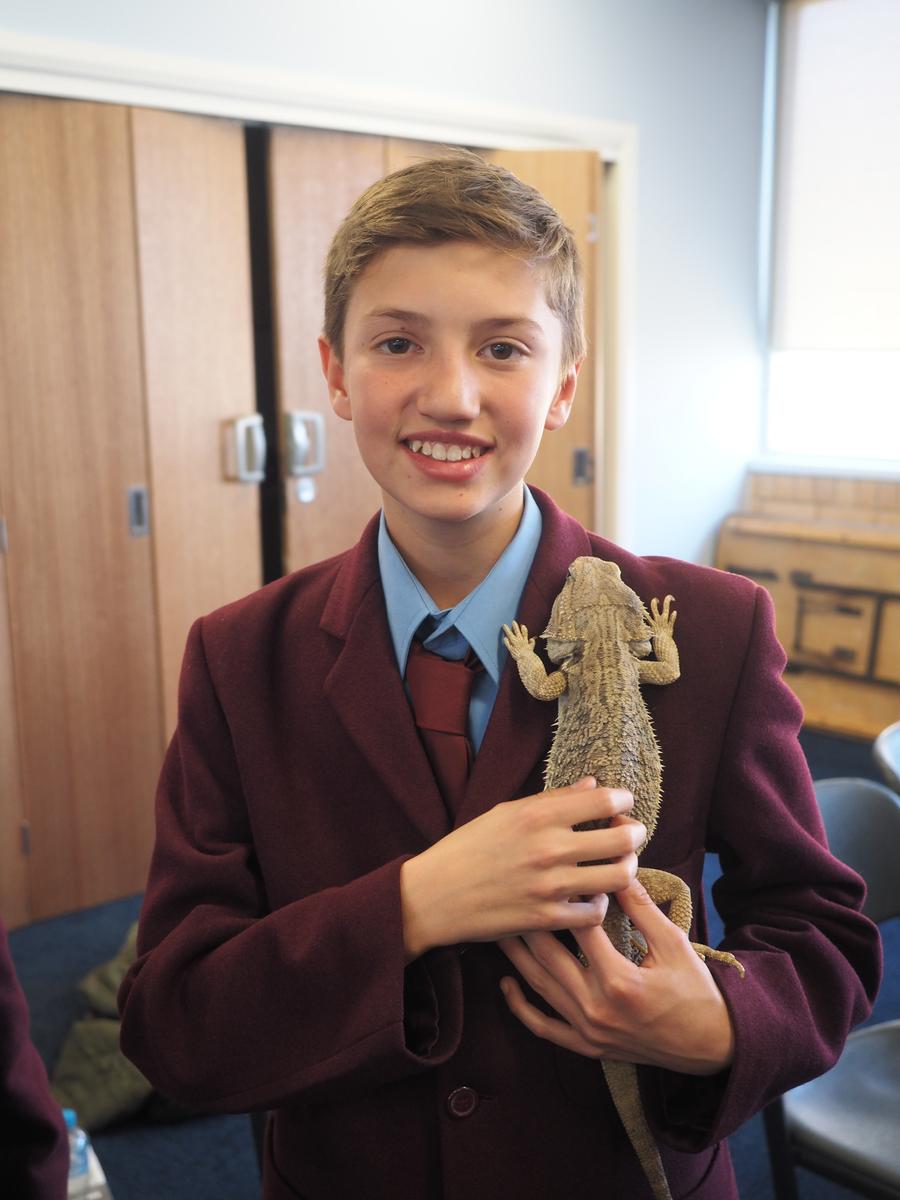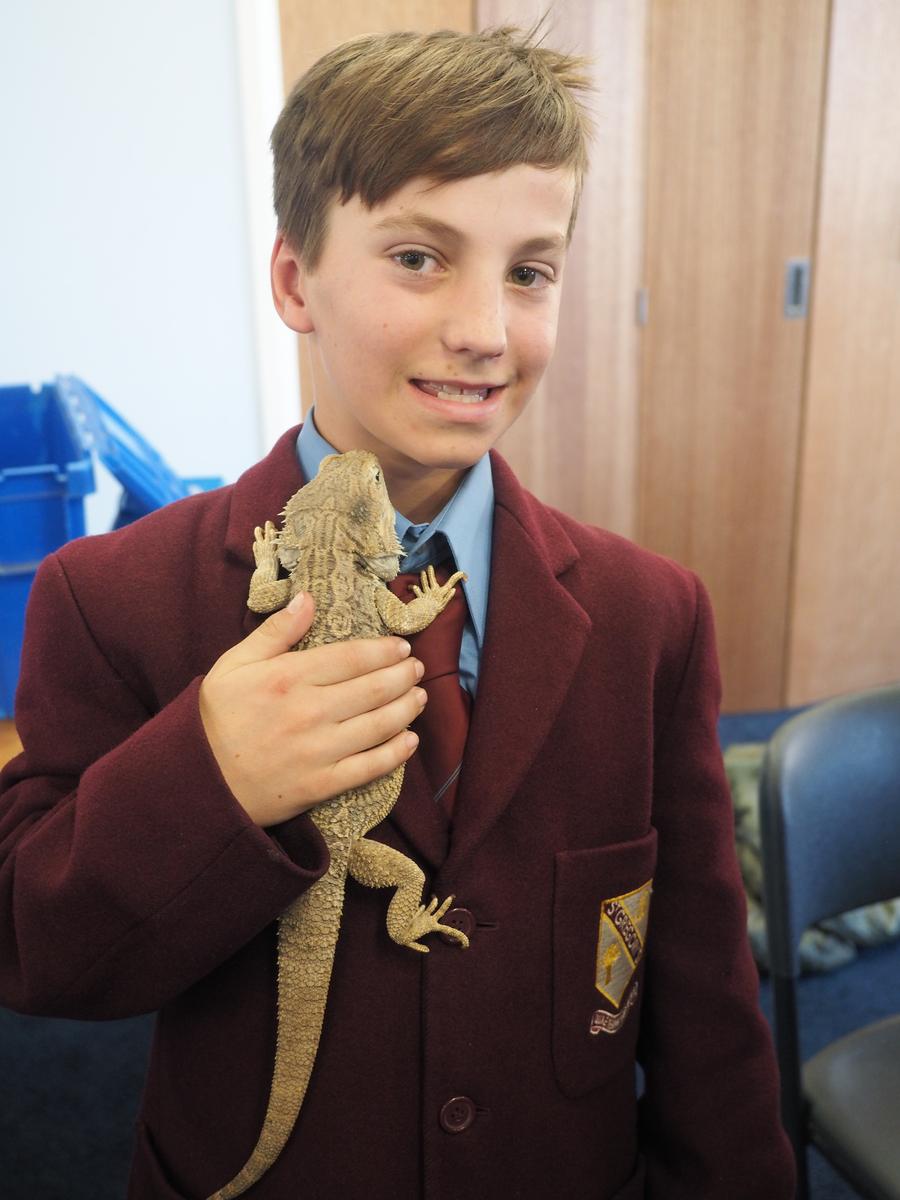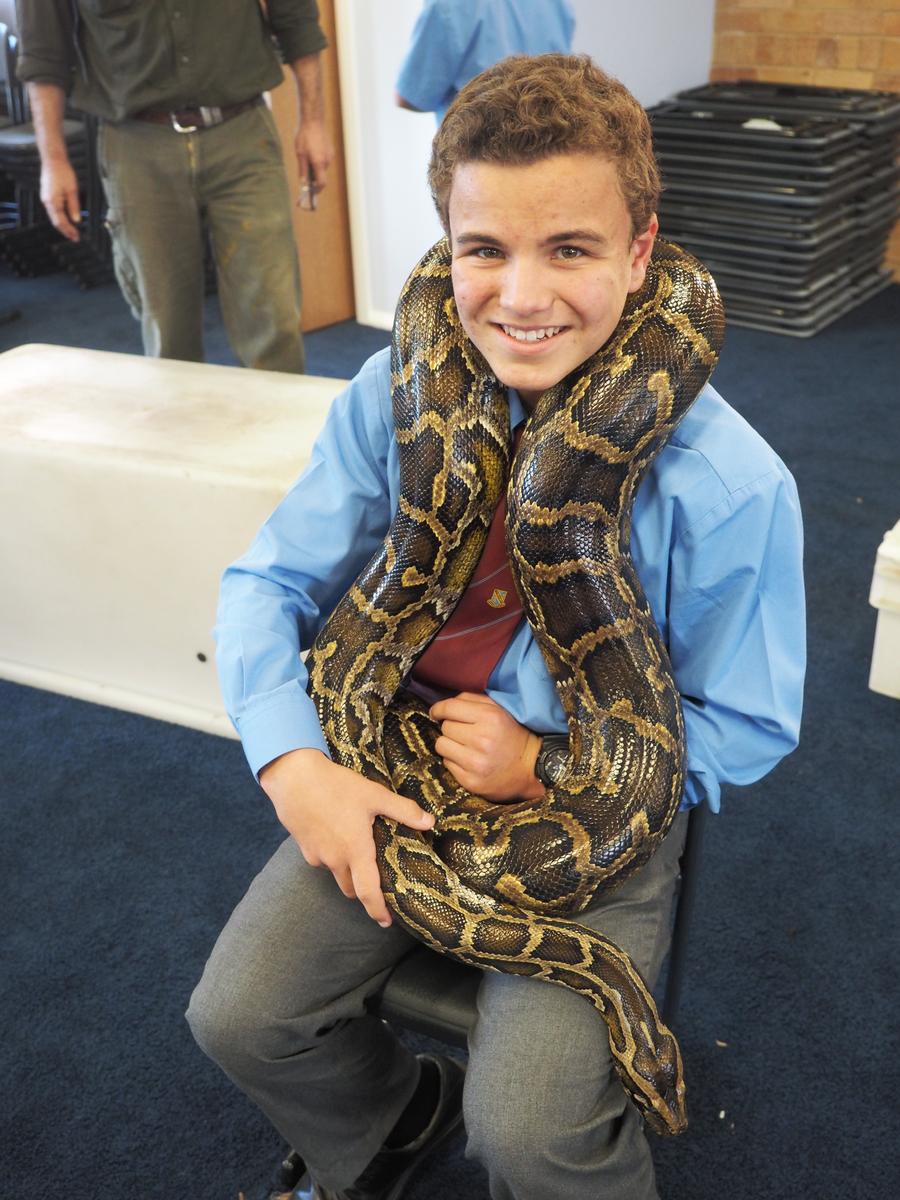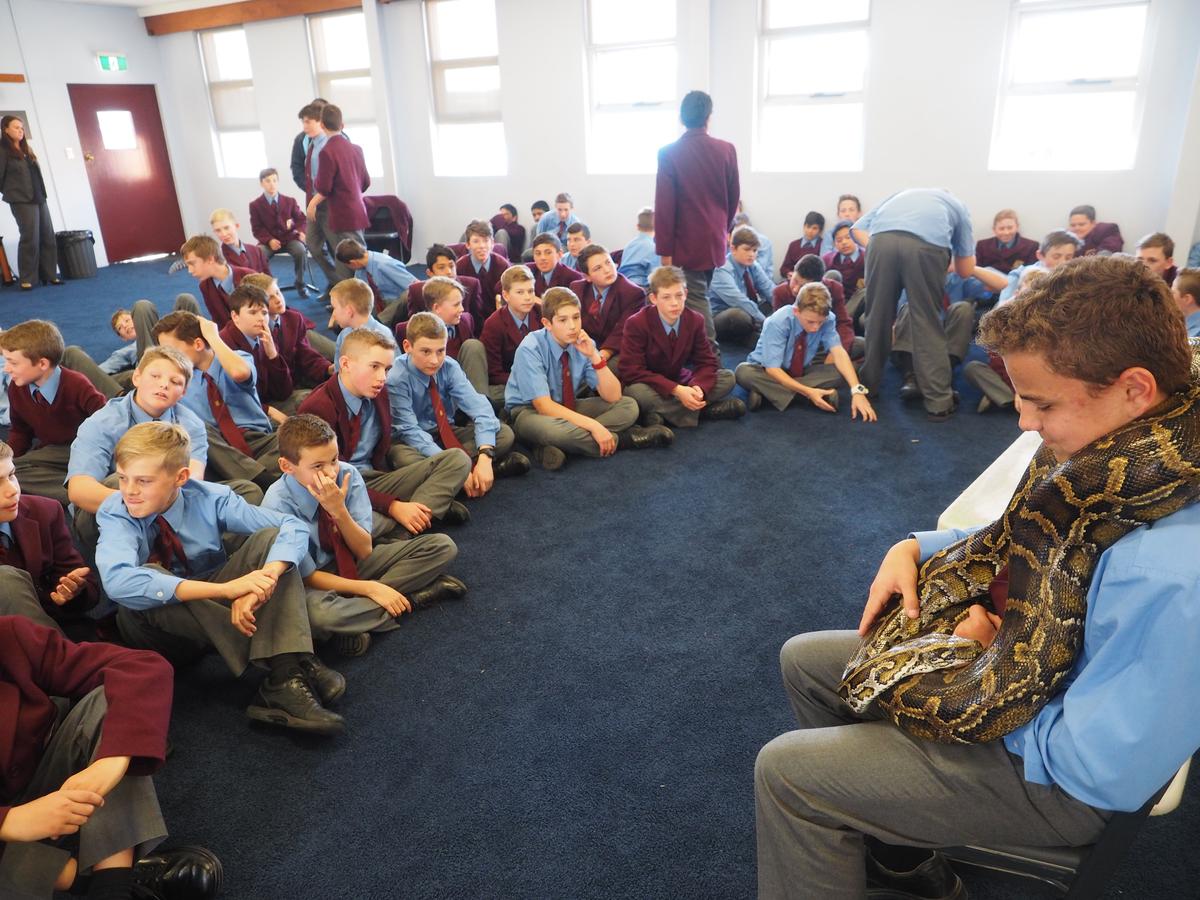Teaching & Learning in the Senior School
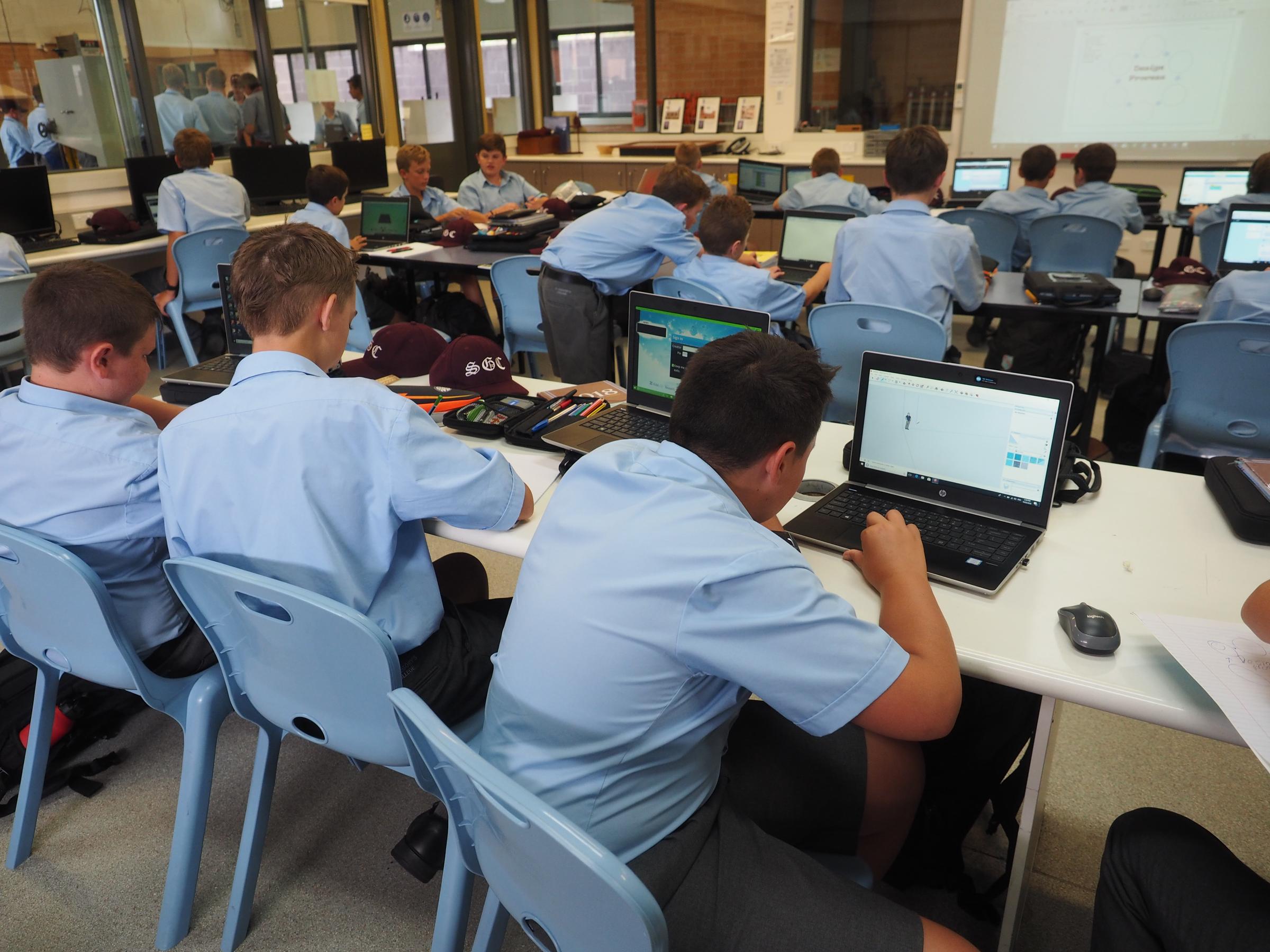
Write a Book in a Day
On Wednesday 8th August, a number of students at St Greg’s participated in the Write a Book in a Day challenge, which is run by The Kids’ Cancer Project. Groups of students collaborated to write and illustrate a 4,000+ word book that would be read by teenaged cancer patients in hospital. The participating students are listed below:
Year 7:
Angus Limbrey, Kieran Minogue, William Cosis, Lachlan Dady, Dylan Burgess, Jayden Susnjara, Archie Berthon
Year 8:
Sean Murtagh, Dylansher Khera, Josh Logozzo, Zack Quig, William Smith, Andrew Parkin
Year 9:
Lachlan McInerney, Christopher Seton, Ben Quinnell, William Winsor, Riley Anderson, Thomas Cusack, Calym Albany,
Cavan Limbrey
Year 10:
Jake Nash, Jeremiah Fisher, David DeVecchis, Zach Rochecouste, Sanjiv Weerasingham,
Carl Rushworth
Learning to be a learner – student attributes
In a previous newsletter I outlined some current thinking in educational spheres about the attributes our young people need in order to be successful learners. These attributes are also referred to as “learning dispositions”. The reason I personally like the term “learning dispositions” is that it recognises that learning is not something some people can do and some people can’t; it suggests instead that there are some necessary pre-conditions that will allow learning to happen, no matter who you are.
In discussing the dispositions (or attitudes and habits) that are necessary for good learning to take place, I draw primarily on the work of Professor Guy Claxton[1]. At the heart of this understanding of the learner is that we should consider learning dispositions to be like muscles that we can flex and train in order to help them achieve their full potential. We all have ‘learning muscles’ that need to be exercised.
Over the next few newsletters I will consider four key learning muscles:
Resilience Resourcefulness Reflectiveness Reciprocity
Each of these muscles can be ‘flexed’ when we give our children and students opportunities to do so. Unfortunately, in our race to help our young people to ‘succeed’, we often enable them to take shortcuts in their learning; they thus focus on ‘passing the test’, but they might not be able to deal effectively with failure when it (inevitably) happens, or know how to approach a different problem to the one they have learned by rote.
Resilience is that ability to be able to ‘bounce back’ from challenges. We all know that life can throw up roadblocks. We all know that sometime, somehow, we’re going to fail at something. Most of us also know that failure goes hand-in-hand with learning. Some of our deepest learning comes from failure.
HOW TO FLEX OUR RESILIENCE MUSCLES:
Eddie Woo Lecture
On the 8th of August, numerous students from St Gregory's College attended a mathematics lecture at Campbelltown Civic Centre. This mathematics lecture was run by Campbelltown Library and Eddie Woo. Eddie Woo is the Mathematics Head Teacher at Cherrybrook Technology High School in Sydney. He is known best for his online maths lesson on his YouTube channel, Wootube.
The lecture was focused on three theories about mathematics, with these sections being ‘Maths as Teamwork’, ‘Maths as an Exploration’ and ‘Maths as Creativity’. The first theory tackled was ‘Maths as Teamwork’
Eddie started this section by providing three movies. These movies were The Imitation Game, Good Will Hunting and A Beautiful Mind. He stated he loved these movies, as they revolved around mathematicians.
However, the main criticism he had with these movies was that they depicted the mathematicians as social outcasts. He believes that in actual fact, a core concept of mathematics is teamwork. Eddie stated that the best way to work in Maths is with others. He used an example from his school. This example was a picture of Year 11 students tutoring Junior students at lunchtime.
The next section was about the theory that ‘Maths is an Exploration’. Eddie told the crowd that Mathematics is about exploring the unknown and trying to make it known. Eddie used an example of an explorer walking through a jungle just to find a sign with directions. The concept was that mathematics is not about the destination but the journey. Eddie also showed us a Japanese Area Maze or Menseki Meiro. This concept uses algebra and basic geometry to find areas or lengths. The game was used to portray mathematics as an exploration.
The final section was about the concept that ‘Maths is creativity’. Eddie explained how mathematics is a beautiful and creative subject and that thinking creatively is vital for succeeding in maths. Thinking outside the box, combining different formulas and finding new ways to solve problems all involve creativity.
This lecture was ultimately very helpful and informative. The reason for the success of the lecture was that it was very easy to understand and comprehend the information being presented to us. The use of real-world and simple examples also helped thoroughly understand his ultimate message; that mathematics is more than just a subject, but rather a way of life which is enjoyable.
If Eddie was to ever have another lecture in the area, I recommend that everyone should go and see for yourself how amazing it is.
By Cody Sainsbury and Kyle Alvarez
Telescope Evening
On the evening of Monday 30th July the College telescope was set up to view objects in the night sky, with a particular highlight being Mars as it was in a close approach to Earth. The weather was perfect for viewing and the boys attending were able to see Mars as it rose from the horizon. Venus, Jupiter, Saturn with its rings, and several constellations were other observations of the evening. Thanks to Mr Smith for his knowledge of astronomy, along with Mr Todd for making the evening possible. Further information on Mars can be found at the following link.
https://mars.nasa.gov/allaboutmars/nightsky/mars-close-approach/
Science Week
Some of the activities on offer to the boys during Science week:
BE A CITIZEN SCIENTIST! - Virtual Reef Diver
In celebration of the International Year of the Reef, Science classes in Years 7-10 had the opportunity to be a Virtual Reef Diver in a program developed by the University of Queensland. The task was to classify underwater images of the Great Barrier Reef and identify the type of coral, algae or sand etc. The work will provide scientists and reef managers with the information they need to make critical decisions to ensure the Great Barrier Reef has a future. https://www.virtualreef.org.au/
SCINEMA Science Film Festival - we hosted a screening of different Science documentaries during lunch time.
WOLLONGONG PLANETARIUM- Year 9 travelled to the University of Wollongong Planetarium for a day of hands-on activities, discovering the forces behind moving objects. The boys also watched the science show ‘Liquid Nitrogen’ and learnt of constellations in the night sky, along with viewing the documentary ‘Violent Universe’.
REPTILE SHOW- Year 7 had a visit from the Australian Reptile Park, where Ranger Mick took the boys through an evolutionary tale of snakes, lizards and crocodilians, learning about their features and adaptations to survive. The incursion finished up with the boys getting up close with the reptiles.
John Dinnen
Science Coordinator
What's happening Mathematics General 1?
The Year 12 General 1 Mathematics class have just completed their Financial Mathematics Assessment task and they have demonstrated that they are learning much more than just maths!
As well as wages and tax calculations, they also had to investigate Employment Awards and explain why they exist. The boys excelled in this section, demonstrating a clear understanding that the Award is where they can find out how much they should get paid, what hours they should be working and their holiday and leave entitlements. When asked about what they would do if they were asked to work outside their Award, their answers included that they would say no, speak with their supervisor, speak with their union representative, or contact Fairwork NSW if they had big concerns.
Their assessment task calculations included working out how much rent they could afford, as well as investigating the other aspects of moving out of home including reading water, gas and electricity bills. The boys were asked to suggest ways that a household could reduce their water usage and their responses included taking shorter showers, installing dual flush toilets, only putting on the dishwasher when it is full and checking the house for dripping taps.
The class has now started their final unit, which is Probability. Here they are investigating different games of chance including two-up, roulette, dominoes and blackjack.

